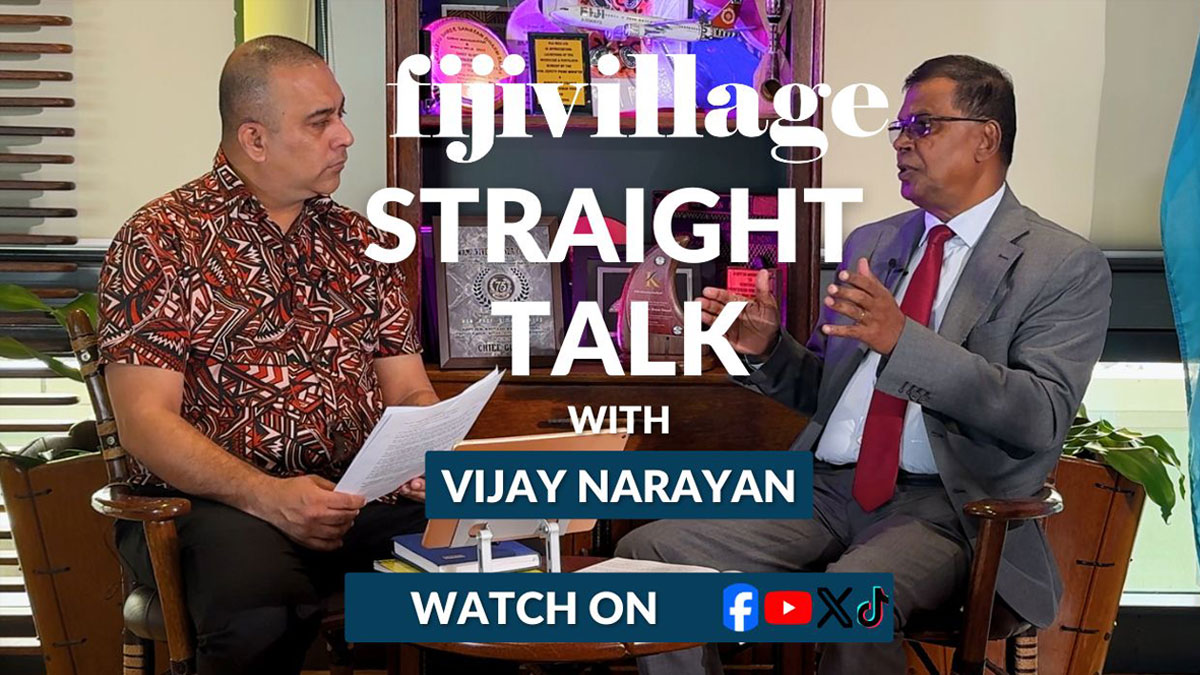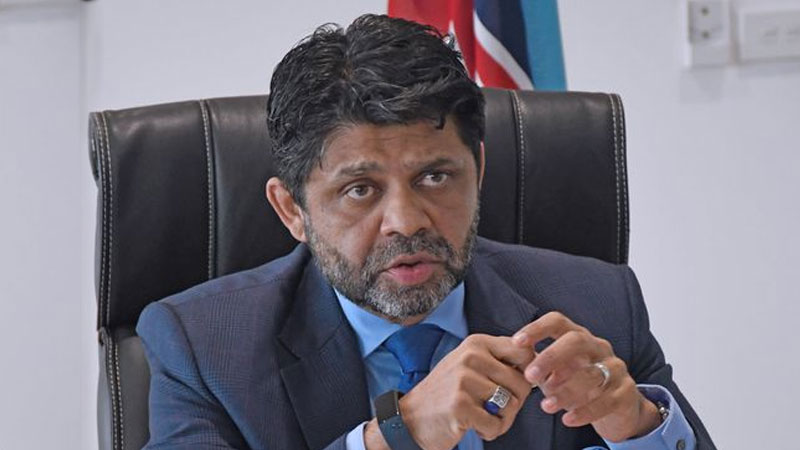
The 2021/2022 National Budget will be delivered by Minister for Economy, Aiyaz Sayed-Khaiyum on Friday 16th July.
The Fijian Government confirms that the budget address will be delivered at 7.30pm.
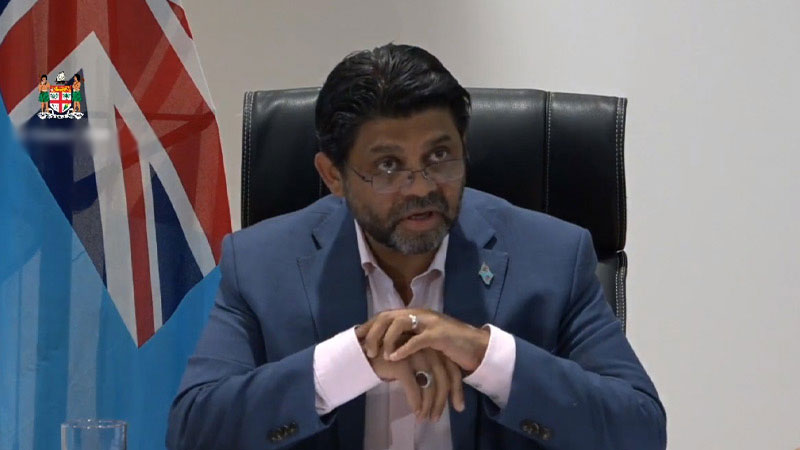
The 2021/2022 National Budget will be delivered by Minister for Economy, Aiyaz Sayed-Khaiyum on Friday 16th July.
The Fijian Government confirms that the budget address will be delivered at 7.30pm.
Sayed-Khaiyum is currently conducting virtual budget consultations.
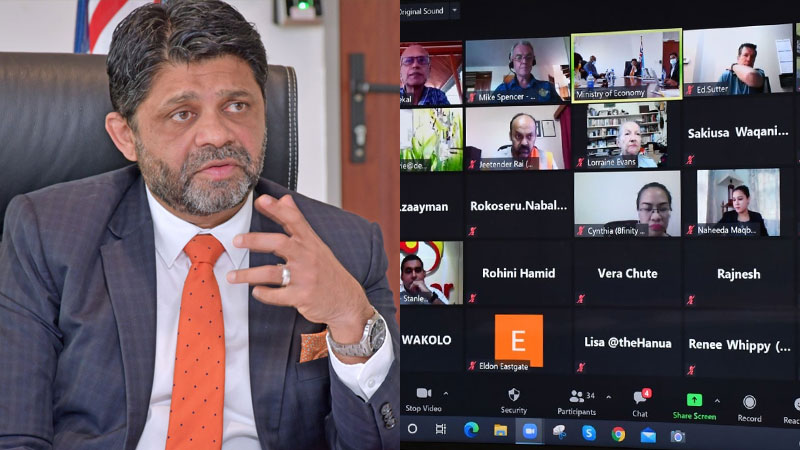
Minister for Economy Aiyaz Sayed-Khaiyum had a virtual budget consultation with members of the Fiji Commerce and Employers Federation, Fiji Chamber of Commerce and Women in Business today.
Sayed-Khaiyum highlighted to the private sector the importance of promoting and encouraging their clients, business partners and customers to get vaccinated.
The participants also shared their views on the challenges caused by the current COVID-19 pandemic and provided recommendations for the upcoming 2021-2022 National Budget.
The discussions also focused on the current challenges caused by the COVID-19 pandemic and the way forward for businesses.
The 2021/2022 National Budget will be delivered by Sayed-Khaiyum on Friday 16th July at 7.30pm.
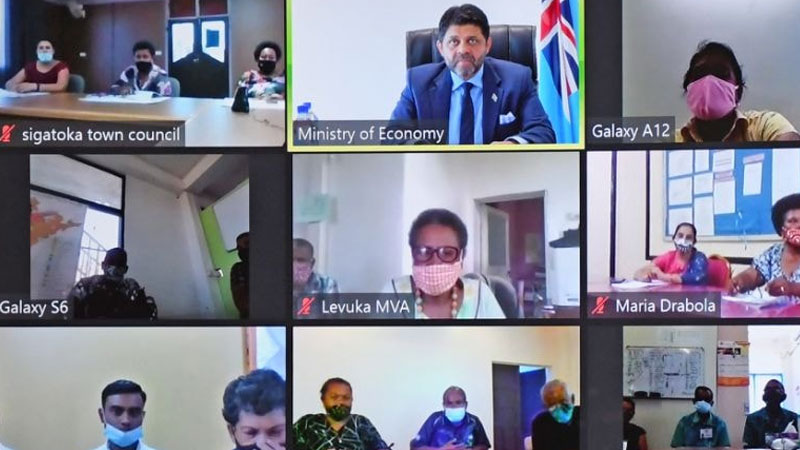
Attorney-General and Minister for Economy Aiyaz Sayed-Khaiyum is continuing to hold virtual 2021-2022 National Budget Consultations.
He met yesterday with various Market Vendors Associations from around the country and the Fiji/New Zealand, New Zealand/Fiji, Fiji/Australia, Australia/Fiji and Fiji/USA Business Councils.
A government statement says discussions at the consultations focused on meeting the national vaccination herd immunity target, working in a COVID-safe environment and creating business-friendly policies.
The consultation also allowed participants to discuss challenges caused by the current outbreak of COVID-19.
Sayed-Khaiyum has stressed the importance of working towards increasing the number of vaccinated citizens and keeping Fijians employed so that they are able to provide for their families.
The 2021/2022 National Budget will be delivered by Minister for Economy, Aiyaz Sayed-Khaiyum on Friday 16th July at 7.30pm
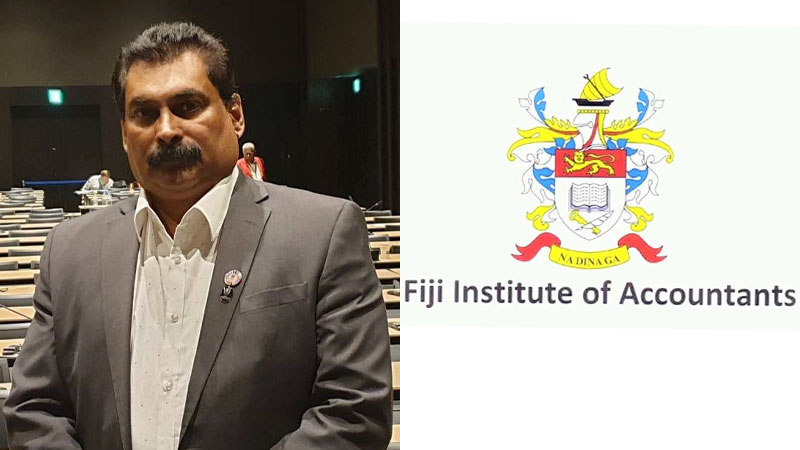
The Fiji Trades Union Congress says they oppose any suggestion by the Fiji Institute of Accountants to increase VAT to 12.5 percent, particularly at a time like this, and object to their suggestion that civil servants should have a salary cut.
FTUC National Secretary Felix Anthony says they also object to the Institute of Accountants’ proposal to take away family care leave.
Anthony says they are surprised and disappointed at some of the submissions made to Government by the Fiji Institute of Accountants.
Anthony says clearly, those that represent the institute are not in touch with the reality on the ground adding that we have the news media, social media, NGO’s, individuals and unions calling for assistance for families who have nothing to eat due to unemployment, lockdowns and poverty in the country.
Anthony says if the civil servants pay is reduced it will bring great hardship to thousands of families and reduce the purchasing power of these workers which would result in a decline in VAT collections and taxes.
He adds workers have mortgages, bills and other financial commitments to pay and many support extended families who are unemployed or dependents. On the issue of family care leave, Anthony says they remind the Fiji Institute of Accountants that family care is more important than work and that there needs to be a fair balance between work and family commitments.
He also says countries around the world are attempting to lessen working hours to achieve a work life balance and here we have FIA suggesting family care is too disruptive.
Anthony adds they remind FIA that the national budget is not only about numbers and balancing the books, it must be more about people, more so, at the current time when most people are barely surviving.
He says we must preserve the good that we currently have and build on them for a fairer Fiji.
In their budget submission, the Fiji Institute of Accountants have suggested that VAT be increased to 12.5 percent.
They say they appreciate that the Government has removed certain taxes in the last Budget and they are of the view that a further simplification and streamlining of the tax regime will facilitate compliance, tax collections and monitoring of taxpayers.
The institute says in this regard they suggest that consideration be given to removing the Environment Climate Adaptation Levy on turnover and increasing VAT to 12.5% adding this will give a broader tax base coverage and increase government revenue, while simplifying the tax regime by reducing the number of different taxes (which the Government has started doing last year with the removal of the Service Turnover Tax and stamp duty).
They say this will make compliance costs more manageable and allow business to focus on carrying out their business activities.
The institute further says they support the Government’s expenditure policy which is aimed at offering efficient Government services, developing infrastructure, and support and assistance to the needy.
It adds emphasis however needs to be placed on proper management and control of expenditure and improving efficiencies within Government, thereby maximising returns for each dollar spent and importantly getting it right the first time.
They say they commend Government’s initiative in increasing its level of capital expenditure and government should also invest in the maintenance of its assets to avoid substantial capital expenditure in the future in terms of replacement of assets due to lack of proper maintenance.
The institute suggests that Government consider making reductions in its operating expenditure where possible, particularly for non-productive areas and one of the key areas that may be considered would be to follow in the steps taken by the private sector and reduce the civil service payroll (which they understand is the Government’s largest expenditure item).
They suggest that this be reduced by 15% to 20% and the savings may be diverted to areas that have been discussed in their submission to create further economic activity and employment opportunities.
The institute says while they acknowledge the COVID-19 measure of reducing family care leave and paternity leave to 2 days per annum during the COVID-19 period, they believe that a review and re-design of family care leave is needed.
It further says this leave has caused substantial work disruption since no advance notice is required and businesses are not able to monitor the same adding that in this regard, they suggest that Government consider removing family care leave entitlement, as the employers may use their discretion to provide time off to their employees for this purpose.
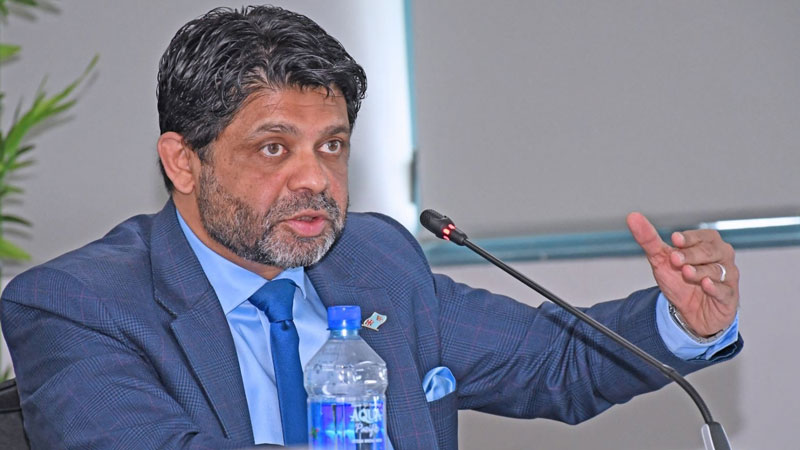
Attorney General Aiyaz Sayed-Khaiyum today hosted a Development Partner Forum where development partners reaffirmed their commitment to helping Fijians mitigate and recover from the pandemic and further pledged their support for the 2021-2022 National Budget cycle.
Over 60 representatives from bilateral and multilateral partners attended the meeting virtually.
The forum discussed Fiji’s COVID-19 response, the upcoming 2021-2022 National Budget and strategic development cooperation.
Addressing members of the diplomatic corps and representatives of multilateral institutions, Sayed-Khaiyum conveyed the Fijian Government’s appreciation for the continuous timely support to our health and economic response.
Sayed-Khaiyum also provided an update on the targeted unemployment support provided to the formal and informal sector, provision of household packs to those in targeted lockdown areas and spending on other social protection initiatives.
In relation to the upcoming 2021-2022 National Budget, the Minister for Economy further highlighted priority sectors for investment in order to stimulate economic activity and employment creation.
Also present in the meeting was the Permanent Secretary for Health and Medical Services, Doctor James Fong, who shared an overview of Fiji’s COVID-19 clinical and public health response.
Doctor Fong highlighted key areas such as community awareness and supply of protective equipment.
The Fiji Government says various development partners commended the Government’s balanced strategy in mitigating the COVID-19 pandemic and providing socio-economic solutions to protect vulnerable populations.
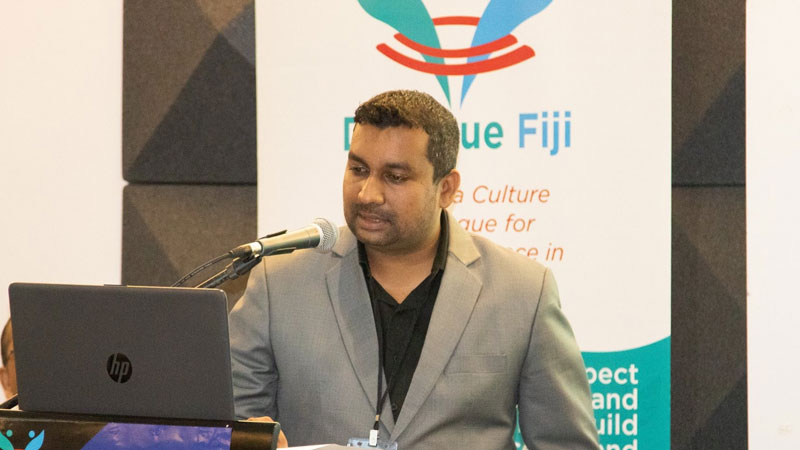
Dialogue Fiji says government should deliver an expansionary deficit budget and retain appropriate levels of state spending and deficit budget can be financed through offshore borrowing and support from donors.
In its budget submission, the civil society organisation says economic recovery will be incumbent on the government injecting money into the economy as this will ensure that there would be sufficient spending power of people to sustain demand when non-essential businesses open up after a prolonged term of closure.
Executive Director, Nilesh Lal says government will need to continue spending at pre-2019 levels however it should cut all unproductive expenditure which includes capital projects such as building of police stations, swimming pools, offices or residences of ministers or other state officials.
Lal says a salary cap of $100,000 on all salaries paid from the state coffers should be implemented and a 5%-10% pay cut should be implemented for those earning above $50,000. He says those earning below $50,000 should not be subject to any pay reductions.
He says Public Works Department should be restablished to re-skill and absorb laid off workers into the workforce, and to reduce outward transfers from the local economy due to engagement of offshore contractors.
Lal says given the economic realities, they strongly oppose any suggestions to increase VAT or any other taxation measure that will burden ordinary Fijians.
He says government should not consider any taxation measures that will burden businesses which are already struggling in an extremely difficult environment, regardless of how pressing the need to increase government revenue may become.
Dialogue Fiji adds any increases in VAT or tariff on common goods that Fijians consume will exacerbate poverty, and eventually increase the burden on the government’s welfare schemes leading to an overall negative outcome.
Lal adds $50 million should be allocated for rebuilding of homes damaged by TC Yasa and this injection of capital will also boost the Northern economy and create jobs in the construction sector.
Lal adds government should remove the 20 cents per litre tax on fuel as this tax was imposed at a time when the global crude oil prices had reached record lows but has since increased more than two-folds.
Dialogue Fiji has also submitted that government should consider impose a vaccine certificate for any movement outside homes to increase uptake of vaccines.
It has further submitted that government should make an allocation of $150 per week for income support to every worker who has lost their jobs for an initial period of 4 months.
Lal further says government should review grants to state-owned enterprises in non-critical sectors such as media.
He says for the longer term, government should consider selling of state-owned media companies as Fiji has a well-developed media industry and does not require a significant transfer of the state’s financial resources every year to run media companies.

Dialogue Fiji is calling for the removal of the 20 cents per litre tax on fuel.
Executive Director, Nilesh Lal says this tax was imposed at a time when the global crude oil prices had reached record lows but has since increased more than two-fold.
Lal says the higher fuel price is pushing up the cost of doing business and having an inflationary effect on consumer prices which affects demand negatively.
In its budget submission, the civil society organisation says government should increase the Ministry of Health’s budget allocation to 5% of GDP to ensure appropriate levels of resources are available to reduce mortality rate due to the pandemic.
Lal further says government should also negotiate another round of repayment holiday for home mortgages with banks, to save homes and negotiate a 6-month moratorium on repayments for loans to small and mid-size enterprises, with lending institutions.
He says soft loan facilities should also be established to support affected businesses.
Dialogue Fiji has further submitted that focus should be on growing existing sectors which have potential for immediate expansion and whilst agricultural sector has the greatest potential to expand, critical hurdles such as land tenure issues remain unresolved and unaddressed for years.
Lal says Fiji has failed to attract foreign investment into the sector which can bring in new skills and technology, and lead to the establishment of agricultural business which can do production at commercially viable and internationally competitive scales.
He says government needs to now exhibit willingness to engage in a national dialogue with relevant stakeholders and influencers, such as opposition political parties on the land issue and civil society organisations like them can play an important role in facilitating this.
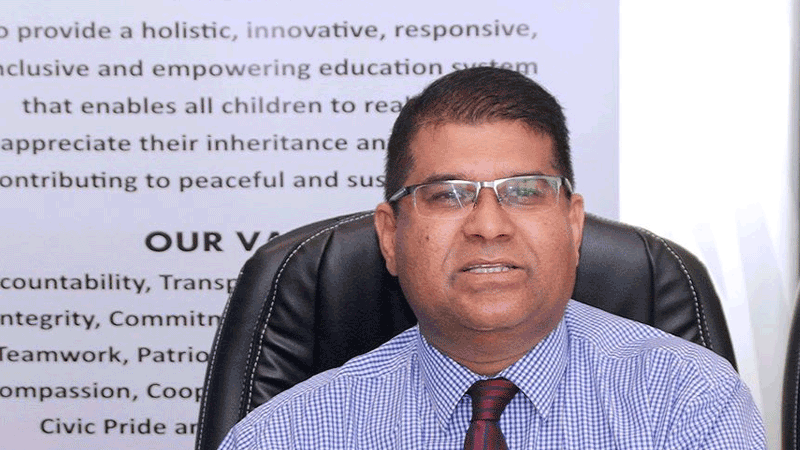
The Reserve Bank of Fiji Governor and Head of the Macroeconomic Committee, Ariff Ali says the second wave of the coronavirus outbreak of the highly contagious Delta variant in Fiji has thwarted all chances of an economic recovery this year.
While speaking on the revised growth projections for the Fijian economy for 2020 to 2023, Ali says the localised lockdowns in Viti Levu, restrictions on certain economic activity and movement of people, and the mandatory “COVID 19-safe” operational requirements for many businesses have further curtailed economic activity and raised the cost of doing business.
Ali says the high unemployment and under-employment situation has worsened from last year, and Government finances have taken another hit, thereby further suppressing domestic demand.
He says given these developments, the economy is forecast to contract further by 4.1 percent this year, driven by the services and industrial sectors, which are expected to more than offset the positive contributions from the primary sector.
The services sectors include accommodation and food services, transport and storage, public administration and defence, financial and insurance services, real estate, health, information and communication, education and other services.
The industrial sectors include manufacturing, construction, mining and utilities.
The primary sector include agriculture, forestry and fisheries.
The latest assessment by the Macroeconomic Committee shows that the Fijian economy is estimated to have contracted by 15.7% in 2020, lower than the 19% contraction estimated earlier.
Ali says the improvement is reflective of the latest available data, which show that major sectors such as finance, wholesale and retail trade, transport and storage, accommodation and food services, construction and information and communication performed better than initially expected.
He says nonetheless, 2020 still represents the most severe economic contraction in Fiji’s modern history, as the collapse in visitor arrivals reverberated across the economy.
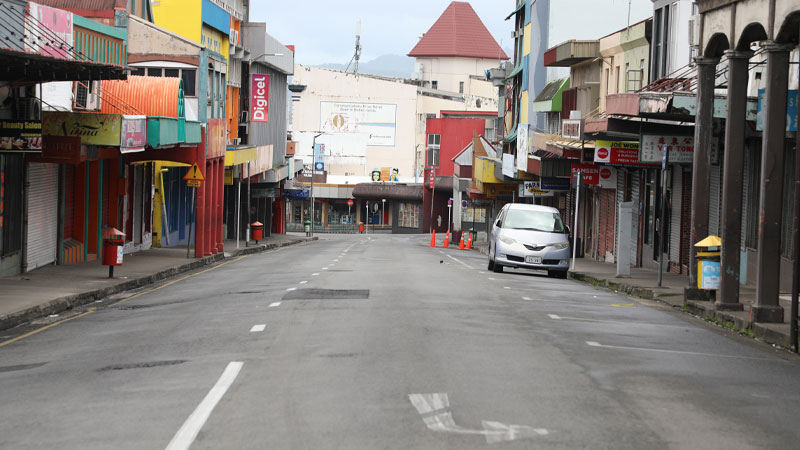
The Reserve Bank of Fiji Governor and Head of the Macroeconomic Committee, Ariff Ali says Fiji’s economic recovery is dependent on the successful containment of the COVID outbreak and the re-opening of borders for international tourism.
Ali says Fiji’s economic growth is expected to rebound to 6.2% in 2022 and accelerate to 8% in 2023
The RBF Governor says as tourism activity stalled from last year, the negative knock-on effects were felt on overall economic activity leading to the deterioration in employment as well as business and household incomes.
Ali says this broad-based contraction in demand and economic activity also translated into lower tax revenue for Government, which also contributed to the negative GDP outcome for 2020.
He also highlights the contraction in the Fijian economy is consistent with most emerging and developing economies, especially tourism-dependent countries, where economic activity contracted significantly and will take some time to return to pre-pandemic levels.
Ali says for 2021, with no community transmission for almost a year, there were strong prospects earlier for positive growth this year as several economic indicators and business sentiments noted improvements.
He says from next year, economic recovery is expected on the assumption that the current outbreak is controlled, herd immunity is achieved through vaccination, and borders re-open towards the latter part of 2022.
Ali says while the economic recovery from next year is contingent on the resumption of tourism activity, visitor arrivals are not expected to return to pre-pandemic levels for some time.
However he says since the current outbreak has yet to peak and there remains considerable uncertainty on its future evolution and impact on Fijian lives and the economy, the economic outlook could deteriorate further.
Ali says the balance of risk to the current economic outlook is heavily tilted to the downside.
These include further delays in controlling the recent outbreak of the virus locally, inability to achieve herd immunity, the persistence of the virus globally (especially amongst our major trading partners), and further delays in the resumption of tourism activity.
Ali says the ongoing threats from natural disasters and the recent upswing in commodity prices constitute other downside risks. He says given the economy’s precarious outlook, economic recovery is critically dependent on the successful containment of the outbreak in the near term and the re-opening of borders for international tourism as local conditions allow.
Ali says a large part depends on achieving herd immunity by ramping up our current vaccination efforts.
He says it is encouraging to note that around 50% of our adult population have already received the first dose of the vaccine.
The Macroeconomic Committee says based on the current inoculation trend, Fiji will be close to herd immunity by the end of October this year.
Ali says it is therefore critical that macroeconomic policies remain geared towards adequately resourcing the health and other frontline agencies to contain the pandemic whilst at the same time ensuring adequate social protection for households impacted by the outbreak and the containment measures.
He says in addition, carefully re-opening businesses within the required health and safety parameters is also crucial for maintaining jobs and livelihoods.
Ali says in contrast to the challenges faced by the pandemic in the real sector, Fiji’s external position has improved substantially.
Foreign reserves are currently just over $3.1 billion and sufficient to cover 11.1 months of retained imports of goods and services and have been boosted by lower imports; increased personal remittances and official aid; external borrowing by the Government; and the sale of Energy Fiji Limited’s shares.
The committee says the recent announcement by the International Monetary Fund to distribute US$650 billion to its members through additional Statutory Drawing Rights allocations will further boost our foreign reserves by around $265 million in the coming months.
It says as a result, foreign reserves are projected to remain at comfortable levels over the medium term.
The Macroeconomic Committee is made up of Heads and senior representatives from the Ministry of Economy; Fiji Bureau of Statistics; Ministry of Commerce, Trade, Tourism and Transport; Office of the Prime Minister; Investment Fiji; Fiji Revenue and Customs Service and the Reserve Bank of Fiji.
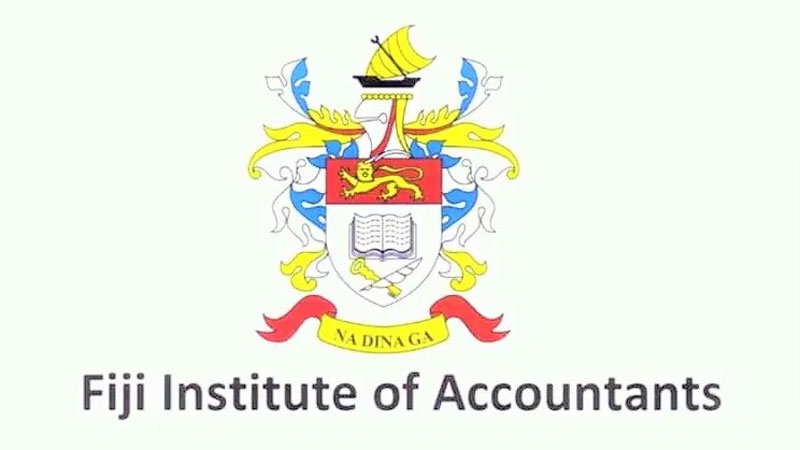
The Fiji Institute of Accountants says their suggestion of reducing the pay of civil servants does not mean they will lose their jobs.
While responding to questions by Legend FM News, the Institute says all sectors of businesses have in one way or another resorted to pay cuts or reduced hours to survive during this time and employers, where possible, will ensure that their employees are at least earning a wage, even if reduced, to be able to provide the basic needs for their families.
They further say while the tourism and hospitality sectors may have completely laid off employees, others are on a reduced salary or reduced work-week. The Institute adds to this end, we need to change the narrative and also consider those in our communities who have actually lost their jobs and who also have commitments but now have nothing to fall back on and are really struggling.
It says in this way, funds can be diverted to provide assistance to those groups of people, while civil servants still have their jobs, albeit at a reduced rate.
On the issue of increasing VAT to 12.5 percent, the FIA says VAT is a broad-based tax, most VAT revenue is derived from the higher income earners due to spending patterns, and there are avenues that may be considered by Government to assist the disadvantaged, while increasing VAT to 12.5%.
It further says this will ensure that Government revenue is increased while still catering for the interests of the disadvantaged in the community adding that VAT is Government’s major source of revenue and is likely to reduce further due to the reduction in economic activity in Fiji.
They also say other revenue sources such as Income Tax are expected to reduce significantly, as the majority of businesses are experiencing reductions in revenue or huge losses from the impact of COVID-19 on our economy and the impact on revenue from income taxes is expected to carry forward into future years, as companies can claim and offset tax losses against its future taxable income.
It adds that government revenue from Customs Duty is also expected to reduce significantly following the unexpected reduction in duties for a wide range of items in last year’s Budget.
They say their submission included a suggestion to review certain import duties to provide assistance to local manufacturers, while increasing customs duty revenue for the Government.
The FIA adds Government revenue from ECAL has been affected due to the downturn in tourism and the hospitality sector and the question now is, where else can Government derive revenue to meet its expenditure and the needs of our people, especially those who have been badly affected by COVID-19.
The FIA says it should be noted that their submissions take a holistic approach and covers Fiji’s broader economic situation, while considering any immediate changes required.
They add it takes time, sometimes years, to bring about reform and for example, their submissions over the years had advocated for the simplification in the number of taxes, and they had called for the removal of Service Turnover Tax and Stamp Duty, and the reduction in Departure Tax.
They say after a few years of advocating for this, the Government made the decision to remove / reduce these taxes last year.
Minister for Economy, Aiyaz Sayed-Khaiyum will deliver the 2021/2022 National Budget address at 7.30pm on the 16th of July.
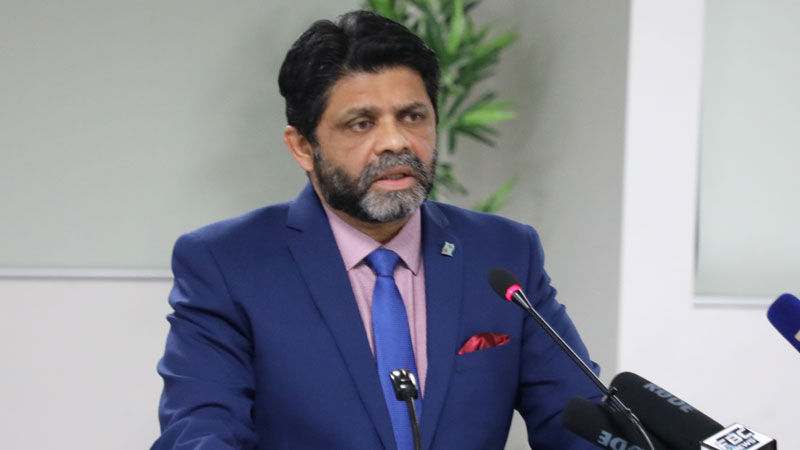
With the 2021/2022 National Budget set to be announced on the 16th of this month, Minister for Economy Aiyaz Sayed-Khaiyum has made it clear that government will not reduce any of the designated allowances in the poverty benefit schemes in the upcoming financial year.
Sayed-Khaiyum has also stated that of the $59.2 million budgetary support given by Australia, $31.1 million was specifically for Social Welfare support.
The Attorney General also hosted a Development Partner Forum last week where development partners reaffirmed their commitment to helping Fijians mitigate and recover from the pandemic and further pledged their support for the Budget cycle.
Over 60 representatives from bilateral and multilateral partners attended the meeting virtually.
Addressing members of the diplomatic corps and representatives of multilateral institutions, Sayed-Khaiyum conveyed the Fijian Government’s appreciation for the continuous timely support to our health and economic response.
Sayed-Khaiyum also provided an update on the targeted unemployment support provided to the formal and informal sector, provision of household packs to those in targeted lockdown areas and spending on other social protection initiatives.
More than 80,000 Fijians are currently benefiting from the government’s Social Welfare Programs.
This includes around 43,909 people being assisted through the Social Pension Scheme, 22,450 families being assisted through the Poverty Benefit Scheme, 7,815 people being assisted under the Care and Protection Scheme and 8,716 people who are receiving Disability Allowance.
Minister for Women, Children and Poverty Alleviation Mereseini Vuniwaqa says these are ongoing programs which have not been affected by COVID-19.
The Ministry was allocated $159.0 million in the 2020/2021 National Budget.
They will also continue works to promote gender equality and women’s empowerment by mainstreaming their participation in Fiji’s socioeconomic development which is driven by the implementation of the National Gender Policy and the Women’s Plan of Action to better promote gender equality.
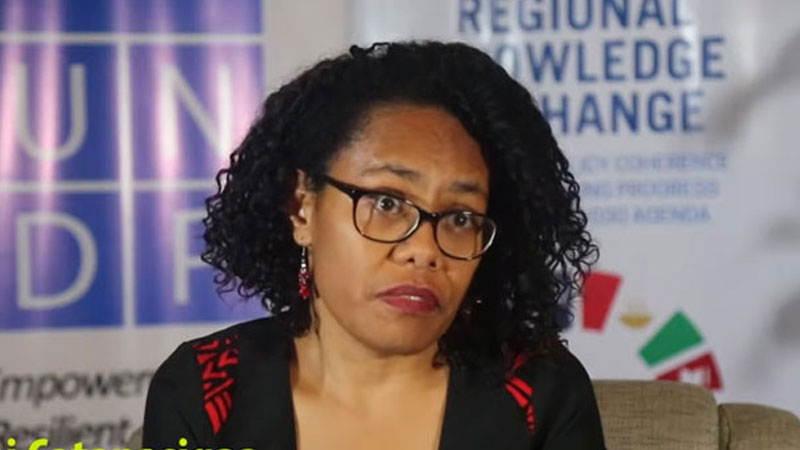
Removal of VAT from basic food items is one of the main submissions made by the Fiji Council of Social Services for the upcoming National Budget.
Executive Director, Vani Catanasiga says they can see from the last few months that access to food is a challenge particularly for vulnerable communities.
Catanasiga says government will have to look at other areas to source revenue as people are finding major difficulties to provide basic food for their families.
Catanasiga says they have also submitted that government should seriously look at agriculture for food security and should facilitate agricultural land packages, diversification for agricultural support, educational programme for best agricultural practices with scholarships for studies and market access facilitation for agricultural produce.
Catanasiga says government should also provide alternative crops and their markets that can yield even a higher income than what people receive from marijuana.
She says finding a solution to this issue will ensure safety and security in the 223 communities in Nadroga and will also potentially create jobs.
Meanwhile, the Fiji Council of Social Services has also called for the activation of the Disaster Management Committee (DISMAC) to bring the full surge support currently missing from the Incident Management approach that Ministry of Health has been utilising since the beginning of the COVID-19 crisis.
Catanasiga says this will mean that all agencies and stakeholders including civil society will be able to collectively bring their resources, expertise and experiences from previous humanitarian events and build a whole of society response.
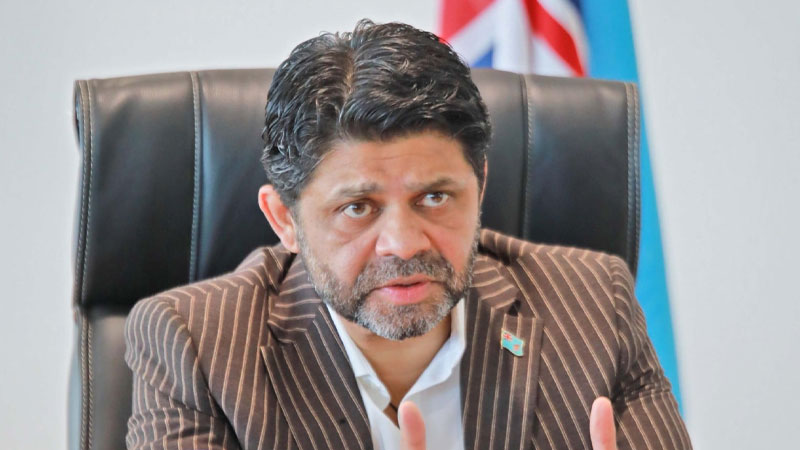
The Association of Banks and the Governor of the Reserve Bank of Fiji, Ariff Ali met with Attorney General Aiyaz Sayed-Khaiyum for their second meeting today to discuss initiatives for the upcoming 2021-2022 National Budget.
The heads of ANZ Bank, Westpac Bank, HFC Bank, Bank of Baroda, Bank of the South Pacific and Bred Bank participated in the meeting.
They will be having further discussions in a third meeting tomorrow.
The 2021-2022 National Budget address will be delivered by Minister for Economy, Aiyaz Sayed-Khaiyum at 7.30pm next Friday.
In the 2020/2021 National Budget, Sayed-Khaiyum had highlighted that as at that date they had worked with the financial sector to restructure over $3.4 billion in loans, freeing businesses and families from mandatory monthly loan repayments.
He had also announced that the Association of Banks had agreed to, on a case-by-case basis, extend loan deferments until 31st December 2020.
Loans have been further deferred this year on a case-by-case basis.
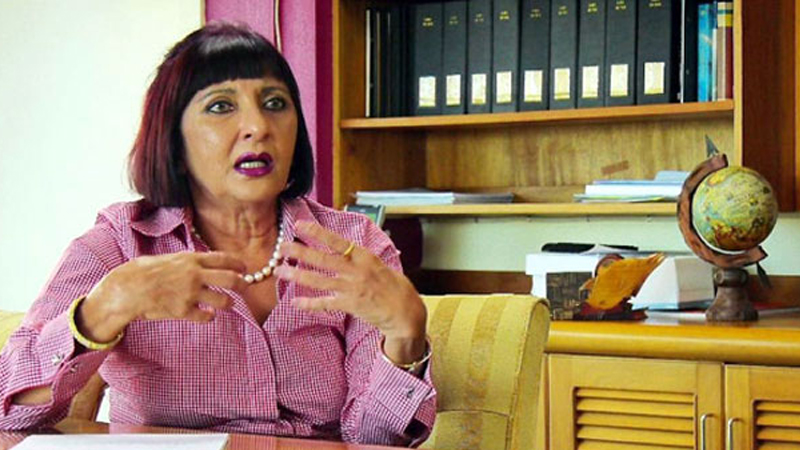
The Fiji Chamber of Commerce and Industry is calling for policies for longer term financing for businesses at reduced interest rates.
President, Doctor Nur Bano Ali says that’s what businesses need now.
She says finance is very restrictive to businesses and while they have so much liquidity in the market, businesses are finding difficulties to get finance at a reduced rate.
Ali says businesses are suffering at multiple levels where the cost of most of the businesses are the same and while they want to keep their staff employed, they are finding major difficulties as they do not have finance.
Ali says they have also submitted to the Ministry of Economy that there should be no change to all tax concessions and concessionary structures that were put in place for businesses last year.
Ali adds VAT should not go up as it is already difficult for people to access food. She says they know Government revenue is reduced however they will be able to sustain for another financial year through downsizing and cutting spending, similar to what businesses have done.
The Fiji Chamber of Commerce and Industry is also supporting Government's no jab no job policy.
Minister for Economy, Aiyaz Sayed-Khaiyum will deliver the 2021/2022 National Budget at 7.30pm this Friday.
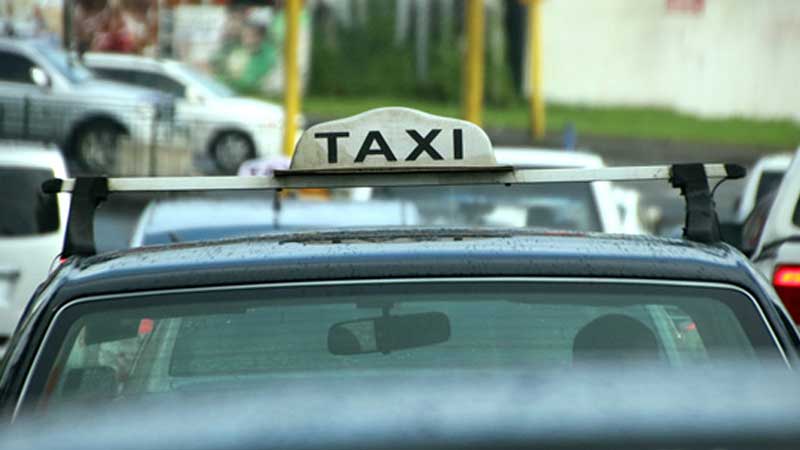
The Fiji Taxi Association says they are hoping that the 20 cents per litre duty on fuel is reduced in the 2021-2022 National Budget as fuel prices have gone up by about 50 cents a litre in the past 6 months.
Association General Secretary, Ashwin Lal says the taxi industry is in a very bad state right now as people are scared of the COVID-19 virus and are not travelling in taxis.
He says taxi operators could get some relief if the duty on fuel is reduced.
Lal is also hoping that the review of fuel prices is done on a quarterly basis and not on a monthly basis as is currently being done.
He has also highlighted that the Association has had discussions with the Minister for Economy and have made suggestions to remove import duty on vehicles, vehicle parts and accessories and tyres.
The Government in the 2020-2021 National Budget had reduced the import duty by 75% on hybrid cars and non-hybrid cars and reduced fiscal duty from 15% to 5% on new cars. Excise duty was also removed on all non-hybrid cars.
The Association Secretary says another issue being faced by the taxi industry is that many people are using their private vehiclesand are operating illegal taxi businesses.
He says they have made suggestions to the Government to deregister vehicles and implement heavy fines on vehicles that are operating illegally as a taxi.
Lal is also urging people to get vaccinated and says they should not believe in rumours about the vaccine causing magnetism.
The 2021-2022 National Budget will be announced on 16th July at 7.30pm.
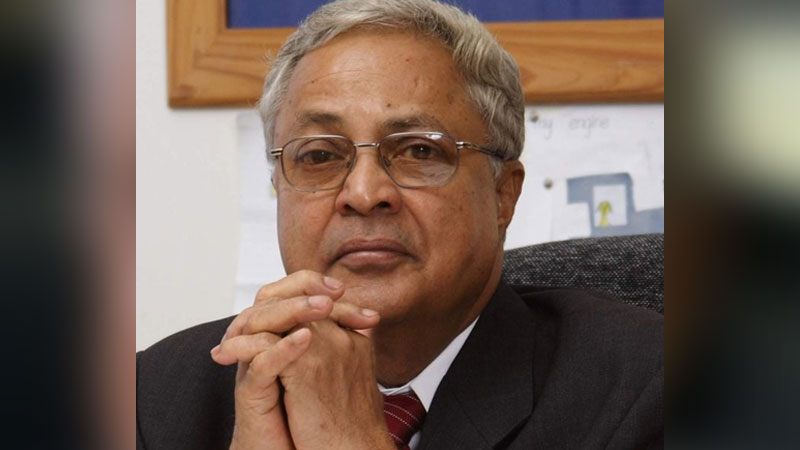
The Fiji Labour Party has rejected any moves to increase VAT in the upcoming 2021/2022 National Budget.
In its submission on the budget, the Fiji Institute of Accountants has proposed that VAT be raised to 12.5 percent and that the 5 percent Environment and Climate Adaptation Levy be scrapped.
However Labour Leader Mahendra Chaudhry says this is not the time to increase a tax which will penalize the poor considering the widespread hardship and suffering inflicted by the COVID-19 crisis.
He says a better option would be to remove the 9% VAT, imposed in 2016 on basic food items as this would provide appreciable relief in these difficult times.
Chaudhry says scrapping the ECAL in return for a 2.5% increase in VAT, is not a fair exchange, as the levy applies to tourism related businesses, coffee shops, restaurants etc with an annual turnover of $3 million or more.
He questions how many of our poor people and those disadvantaged by COVID, some 75 percent of the population, are likely to benefit from the removal of ECAL.
Chaudhry says the focus right now should be on the suffering people, making their lives bearable and on containing the exponential increase in the spread of the COVID virus.
He says Government’s figures released in February 2021 show 115,000 workers have either been made redundant or were working on reduced hours, comprising one-third of the workforce.
The FLP Leader says some 40,000 workers were reportedly laid off from the tourism industry alone.
Chaudhry says this situation worsened in March when the accelerated rate of the virus led to the imposition of border containment zones and lockdowns, particularly in the Central Division.
He says businesses and factories had to close down, and thousands more were deprived of their jobs and weekly pay checks.
Chaudhry says the prevailing highly depressed socio-economic conditions caution against any fiscal measures which will fuel inflation and add to the problems of the ordinary people, as well as businesses.
He says raising VAT will mean paying more for food and other basics, water, electricity, communication, medicines and transport.
Chaudhry questions how can one justify raising a tax that will cut across all sectors of the economy, increasing the cost of goods and services and pushing the already high cost of living to new heights.
He says as it is, the unemployed have received very little assistance from the Government in terms of COVID-19 relief.
Chaudhry believes the majority of the workers have been pushed to fend for themselves by withdrawing their pension savings from the FNPF.
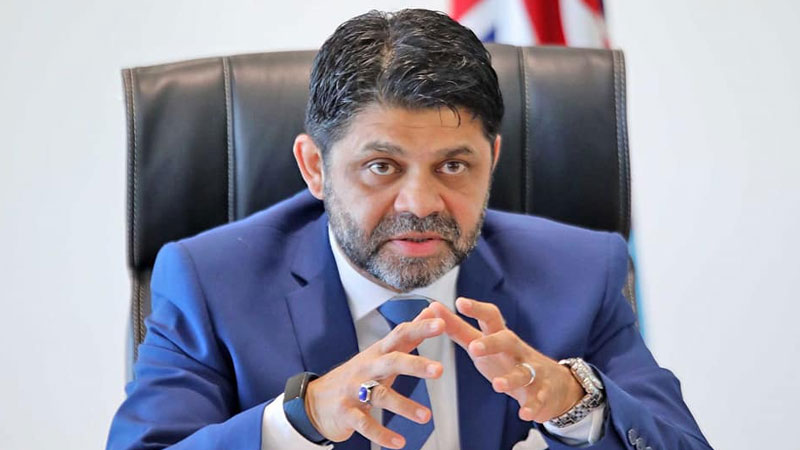
Attorney General and Minister for Economy Aiyaz Sayed-Khaiyum has reassured people that despite the situation the country is facing with the current COVID-19 outbreak, programmes that are important to youths, such as the Tertiary Education Loan Scheme and Toppers initiatives, would continue.
16,661 students are currently studying under the TELS program while 2,525 students are studying under the National Toppers Scheme.
In the 2020-2021 National Budget, the Government allocated $35.5 million for the Toppers Scheme while $161.1 million was set aside for the TELS program.
In this financial year, a major change was made to the TELS program where the Government increased the threshold for qualifying for TELS from 200 to 250 marks.
Education Minister Rosy Akbar stated last year this was done to encourage students to work harder and increase the quality of education.
Akbar has also previously stated that the National Toppers Scheme has always addressed areas of need and this will continue however these will be subjected to revision depending on the COVID-19 situation and how it develops both locally and internationally.
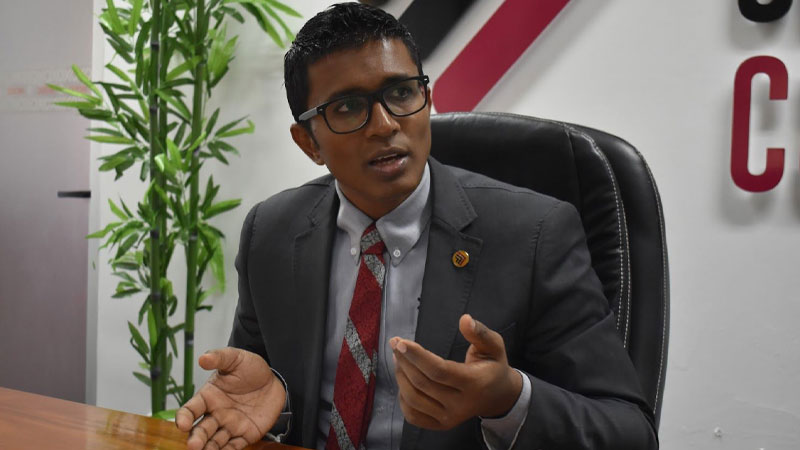
The Fijian Competition and Consumer Commission expects that consumer protection will be a key area of the 2021/2022 National Budget.
FCCC CEO, Joel Abraham says given the COVID-19 pandemic, the issues relating to consumer protection has increased.
Abraham says they will also like to see the continuation of the policies relating to price control as this gives consumers certainty that businesses will not overcharge them.
He further says they have noted that duty reductions announced for some items in this year’s budget have not been passed down to consumers.
The Minister for Economy Aiyaz Sayed-Khaiyum had announced last year that they were cutting customs duties on over 1,600 items.
He adds this is expected to be a very difficult budget given that the overall budget revenue has declined.
Abraham also says one of the challenges for them is at looking at online business activities given that a lot of it is now happening on social media which are largely unregulated.
He says there are businesses that are saying that goods once sold cannot be returned or no refund policy which is a deprivation of consumer rights which is entrenched in the FCCC Act.
Abraham adds the number of complaints have increased in relation to this.
Minister for Economy, Aiyaz Sayed-Khaiyum will deliver the 2021/2022 National Budget at 7.30pm this Friday.

The immediate focus of new Tourism Fiji CEO Brent Hill will be to work with Fiji’s health authorities to restore tourism activity which has been most affected since we recorded our first case of COVID-19 in the country last year.
Hill most recently was the Executive Director of Marketing for the South Australian Tourism Commission and brings over 16 years of experience in tourism and digital marketing.
He replaces former CEO Matt Stoeckel whose tenure ended in December 2020.
Minister for Tourism Faiyaz Koya says restoring tourism activity will not only restore jobs for hundreds of thousands of Fijians but it will also significantly contribute to the revival of the economy through the industry’s multiplier effect.
Koya says we are turning the corner now with the rollout of our national vaccination program in anticipation of market re-entry beyond our traditional markets.
He says this sets the scene for Hill and Tourism Fiji to position Fiji as the ideal destination for those that are ready to travel.
Koya says with Hill at the helm of Tourism Fiji, we are a step closer to strategically positioning Fiji in the global market again.
Thousands of Fijians in the tourism sector have been unemployed for over a year with majority of the hotels and resorts closed. According to the 2020 ANZ Research Pacific Economic Outlook Fiji Report, tourism revenue fell from $1.9 billion in 2019 to $308 million in 2020 which is a decline of about 84%.
Tourism Fiji was allocated $25 million in the 2020/2021 National Budget.
Government had also removed the 6% Service Turnover Tax and reduced the Environment and Climate Adaptation Levy from 10% to 5% to make hotels and resorts in Fiji more affordable.
Minister for Economy Aiyaz Sayed-Khaiyum had said that a market survey has shown that Fijian resorts and hotels can be overpriced and as an immediate effect of these tax cuts, they expect the price structures for rooms, food, alcohol to drop.
Sayed-Khaiyum will deliver the 2021/2022 National Budget at 7.30pm this Friday.
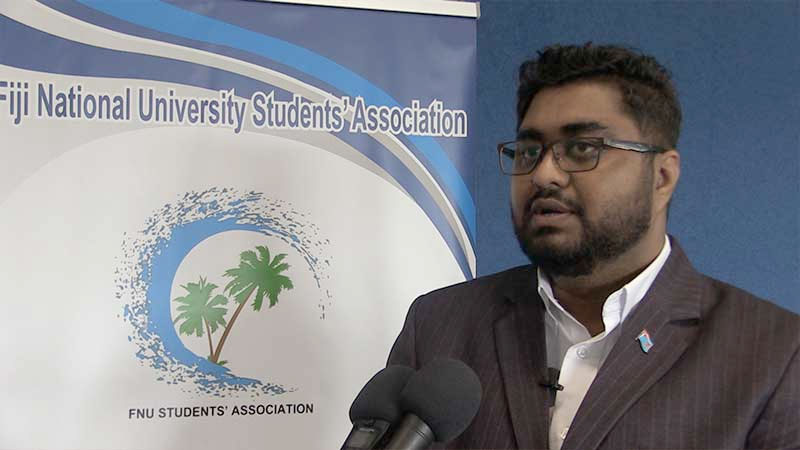
The Fiji National University Students Association is calling on the Government to invest more in the digital platforms, especially to assist tertiary students who are now studying online from their homes.
President, Ketan Lal says the Government should also increase their coverage of digitalFIJI Wifi to villages and remote areas where network and data services are limited.
Lal says students also need assistance like recharge cards.
He says while the FNU has put a free platform for online classes, students also need to go to other websites to do their research.
Lal says the student body would be grateful if the Government could to talk to telecommunications providers as there are a lot of internet issues.
Minister for Economy, Aiyaz Sayed-Khaiyum will deliver the 2021/2022 National Budget at 7.30pm this Friday.
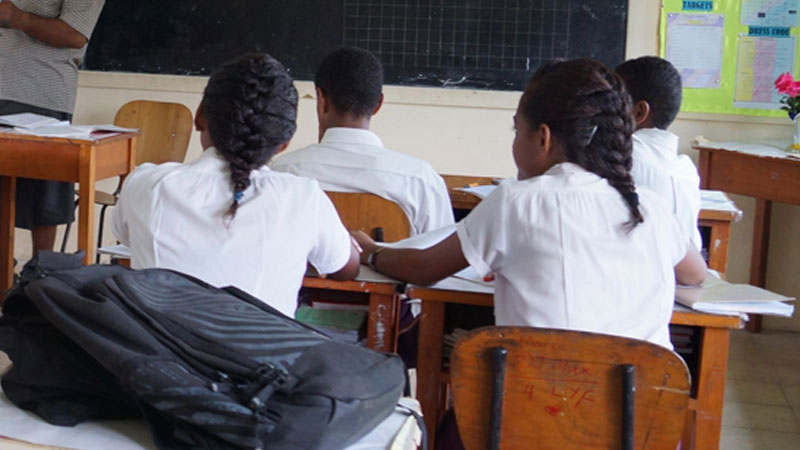
Programs like free education and the bus fare subsidy are expected to continue to receive appropriate funding in the 2021-2022 National Budget despite the current circumstances.
However, this will be all be linked to how and when schools will be safe for re-opening and how much funding will be needed to ensure both students and teachers are able to effectively learn and teach from home with the necessary resources if the current situation continues.
There is also expected to be targeted assistance for schools still recovering from Tropical Cyclone Yasa although Australia has already stepped in to provide relief in that area in this financial year.
This was in the form of a grant of $19.7 million grant for the reconstruction of 9 schools damaged by TC Yasa in the Northern Division.
These schools are Lekutu Secondary School, Lekutu District School, Nukubulu Primary School, Maramarua District School, Dreketi District School, Bua District School, Dama District School, Wailevu West District School and Ratu Luke Memorial School.
In this financial year, there was a reduction in the free education grant and 13,000 plus teachers were not subjected to any pay cuts.
It was also announced that salary increments for teachers who obtain new qualifications will now be approved and paid in the next financial year.
As announced last year, those pay raises will be backdated.
The Ministry of Education was allocated $450.6 million for this financial year and despite the reduction, Education Minister Rosy Akbar made it clear that the focus will be making sure the quality of education is not compromised.
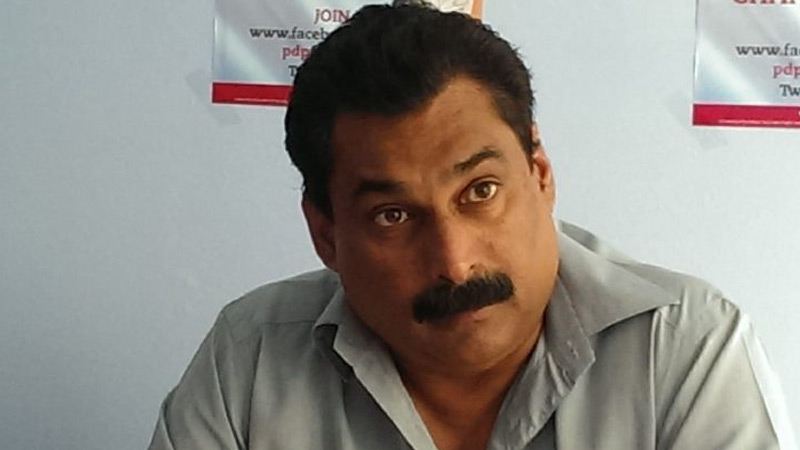
The Fiji Trades Union Congress is again pushing for the minimum wage rate to be increased to $4 an hour and the National Secretary, Felix Anthony also says they do not want salary cuts for civil servants, no increase in VAT and removal of VAT from essential food items.
While making their 2021/2022 National Budget submission to the Minister for Economy, Anthony says they firmly believe that the current minimum wage condemns workers to extreme poverty and in no way meets the test of decent work.
He says they also do not believe the justification to keep minimum wage well below the poverty line to save jobs.
Anthony says the FTUC has campaigned for a $4 minimum wage for some years now. He says while this may still be below the poverty line, they believe this may be a good place to start and that a review be undertaken annually with a view to ensuring a living wage where no one should earn below the poverty line and enjoy a decent standard of living.
Anthony says they also propose that VAT be removed from essential food items which can be listed and can be offset from luxury items.
He says this is to ensure that ordinary people have access to basic food items which are affordable, more so, at a time when a good number of people around the country are either unemployed or under employed.
Anthony says they do not agree to the proposal made by the Fiji Institute of Accountants to increase VAT on all items.
He says they also do not agree with FIA’s proposal to cut salaries of civil servants.
Anthony says they note that the normal merit increments for the civil service as per the Government’s own Remuneration Guidelines implemented in 2017 have not been paid.
He says they note that rural allowance and acting allowances for teachers have not been paid for about 2 years now.
The FTUC National Secretary says they believe that there can be meaningful savings if Government acted seriously on the wastages exposed in the Auditor General’s Report.
Anthony says they also note that Government Ministers and Permanent Secretaries have had a massive salary hike of upto 300 percent some years ago.
He says they never believed that was necessary nor justified.
Anthony says they would like to suggest that substantial savings could be made if contracts that are entered into with private contractors are scrutinized more thoroughly and, managed efficiently and transparently to ensure quality deliveries.
Meanwhile Anthony says there have been widespread job losses due to the pandemic across many industries. He says this is particularly very serious in the hotel and tourism industry.
He says while the Government has stated that millions of dollars have been given, they do not believe it has been sufficient.
Anthony says they have exhausted their FNPF funds with nothing or little left for a decent retirement. He says they have also decried the Government’s policy of reverting to members’ FNPF savings in times of crisis.
He proposes propose a special Fund be set up where Government budgets a meaningful amount to be set aside for such eventualities.
Anthony says the $50 assistance is really no assistance at all and to make it worse, people have had to queue for long periods to collect their money.
He says there needs to be some dignity in these processes.
The FTUC says we do not need to make our people look like beggars for a $50 grant.
Anthony also says the current wave of coronavirus that we are experiencing is not an act of God but rather the negligence of some of our own people and what he calls the Government’s inadequate response from when this wave started in Nadi in early April.
He says they have witnessed that employers are taking advantage of the current crisis to reduce terms and conditions of employment, many of which had been negotiated and agreed to decades back and had served well.
Anthony says they note that Government has given much assistance to Fiji Airways to survive but ignored its workers completely.
He says when times were good, these very workers were the backbone of the company.
Anthony says in the budget submission to the Minister for Economy that they also propose that Government respects the workers’ contribution to Air Terminal Services and the fact that 49 percent of the company is owned by the workers Trust. He calls on the Government to reinstate the workers’ representatives, whoever they choose, to be on the Board so as to make the collective decision in the best interest of the company.
He says workers terminated by Water Authority of Fiji in May 2019 remain out of work and are awaiting their day before the Employment Relations Tribunal more than 2 years later.
Anthony says they propose that these workers be compensated either through redundancies negotiated with their unions or through Government grants.
Minister for Economy, Aiyaz Sayed-Khaiyum will deliver the 2021/2022 National Budget address at 7.30pm tomorrow.
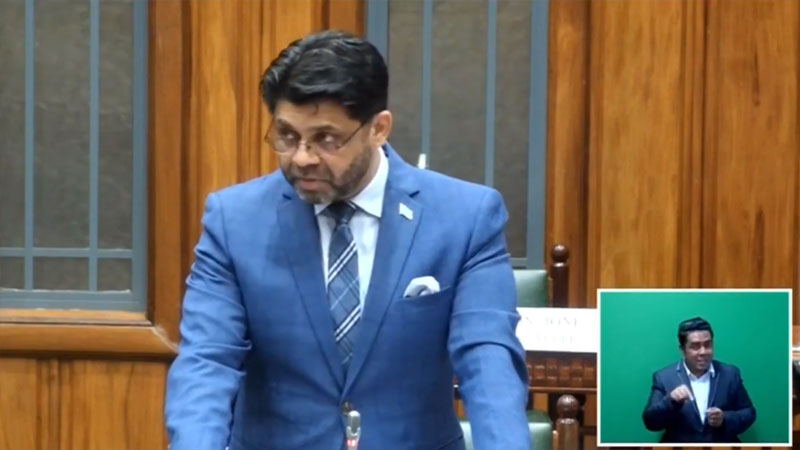
Minister for Economy, Aiyaz Sayed-Khaiyum has stressed the importance of moving the economy and the country as a whole forward if Fiji reaches the 80% target to get the eligible population fully vaccinated.
While presenting the 2021/2022 National Budget, the Attorney General says they expect 80% of the eligible population fully vaccinated by 31st October this year.
Sayed-Khaiyum says Fiji’s vaccination target population over the age of 18 years is estimated at 586,651, and to reach the 80% vaccination rate, 469,321 individuals have to be fully vaccinated.
The Ministry of Health is provided with an increased budget of $403.3 million, which includes the hiring of additional 238 intern nurses, 140 medical interns, 114 doctors, 10 nurse practitioners and 43 midwives and a specific $25 million COVID-19 contingency fund.

The Minister for Economy says apart from this, there is an additional funding provision of $12 million for the supply of food and other essential items to those in quarantine and isolation and $5 million allocated for the engagement of private general practitioners to relieve pressure from the public health system.
He also says this means no jabs no tourism, no jabs no opportunities, no jabs no school and no jabs no future.
Sayed-Khaiyum says they are acting to protect everyone not please everyone.
He says with the Government revenue down, there is a freeze in hiring in the civil service however this does not apply to the Health Ministry and Police as they try to contain the virus.
Sayed-Khaiyum says if we achieve our vaccine target by 31st October, we will not only welcome back visitors from abroad but also spend Christmas with our loved ones.
He says progress is not always achieved in the public arena, and discussions continue on how to move forward.
The Minister for Economy says for the financial year 2021-2022, tax revenue collections are projected at $1.597 billion, 43.3% lower than pre-COVID levels.
He says compared to the 2020-2021 financial year, tax collections are higher due to lower estimated VAT refunds as large backlog of outstanding refunds were cleared in this financial year.
This higher collection is also based on the assumption that there will be some form of reopening of the borders in the first half of 2022, but arrivals are conservatively estimated at around 20% of preCOVID levels for revenue projection purposes.
Sayed-Khaiyum says it is important to note that the Government will also carry over around $150 million in cash balances to the new financial year. He says this provides an additional buffer in the event if tax revenues do not perform as projected.
Apart from this, non-tax revenue is estimated at $487.5 million.
The Minister for Economy says the Government will continue reforms with further divestments planned for Amalgamated Telecom Holdings Limited, Fiji Airports Limited and some other small entities.
He says this is expected to generate around $150 million in non-tax revenue.
Government is also in discussion with a number of development partners for more budget support grants which is conservatively budgeted at around $116.3 million.
Based on the assumptions, the total revenue for 2021/2022 National Budget is projected to be around $2.1 billion. This includes tax revenue of around $1.6 billion and $488 million in non-tax revenue including grants and divestment of shares.
On the expenditure front, Sayed-Khaiyum says reductions have been made in operational expenditure across Government, including a freeze in civil service recruitments and reductions in other current expenditures.
However, new expenditure demands have been catered for to provide targeted assistance to those unemployed and vulnerable, and fiscal support provided to businesses and the tourism industry to sustain themselves before the borders open up.
The total expenditure for the next budget is around $3.69 billion.
Government debt is projected to be around $9.1 billion or 91.6% of GDP by end of July 2022.
However, the Minister for Economy says as seen in this financial year, it is likely that actual debt could be lower than projected if border reopening and pick up in tourism and other sectors are much stronger than anticipated.
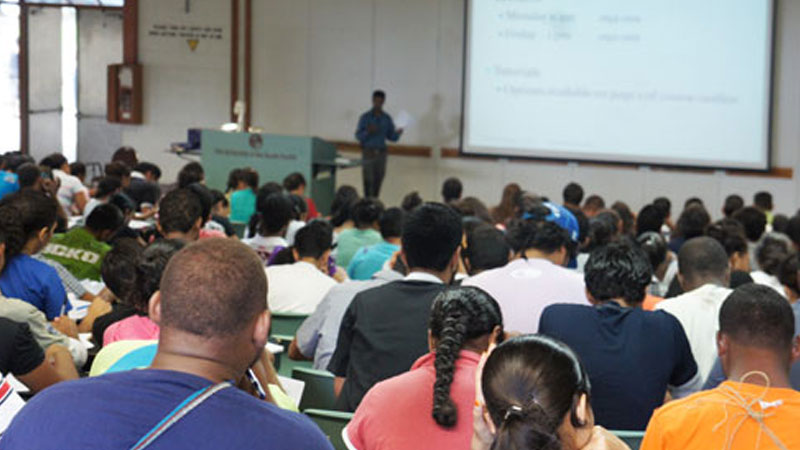
Minister for Economy, Aiyaz Sayed-Khaiyum says despite these challenging times, the Government will continue to ensure that every child receives primary and secondary education fully paid by the Government.
$59.4 million has been allocated to cater for 217,000 primary and secondary school students from Years 1 to 13 under the free education initiative introduced in 2014.
A further $17.1 million is provided as transportation assistance for more than 103,000 primary and secondary students from low-income families.
Sayed-Khaiyum says the Tertiary Education Loans Scheme and National Toppers Scheme will continue to support eligible students to continue their education with an allocation of $158.1 million.
The TELS entry mark has been increased to a minimum of 280 and in areas where there is over supply of graduates, eligibility marks will be increased to 300 for Year 13.
This includes Accounting, Tourism, Law, Management and Public Administration and certain areas in teacher training, medicine, and health.
He says all MBBS students that had privately enrolled with a minimum Year 13 mark of 340, with the first year GPA of 3.0 or more, and combined family income below $100,000 will be eligible for a one off $10,000 Government grant towards their education.
Sayed-Khaiyum also says a new financial assistance scheme will be in place for all TSLB students who are required to complete a period of industrial or clinical attachments to allow them to graduate from their sponsored programme.
This will be a $100 monthly top up in addition to what is being currently provided by their employers.
The Government is also introducing a new TELS stream with 5,000 placements available for TVET courses for Certificates 3, 4 and Diploma Level 5 at Fiji National University.
Those students who will not be able to achieve the cut off mark for TELS for Degree programmes will be able to join this scheme.
Government will continue with the scholarship support through National Toppers Scheme in priority areas, however, the scholarship award has been reduced from 600 to 480.
The 120 awards will be redirected in areas of inclusive education, early childhood education, counselling, and psychology, with 95 placements, and another 25 awards for post graduate programmes such as dermatology, anaesthesia, epidemiology, mid-wifery obstetrics, gynaecology, emergency nursing, surgery and pathology. Priority will be given to female applicants.
Also, effective from 1st January 2023, students who complete foundation studies will be disqualified from TELS eligibility criteria.
Students who are currently enrolled in foundation studies and complete by the end of this year will be eligible for TELS in 2022.
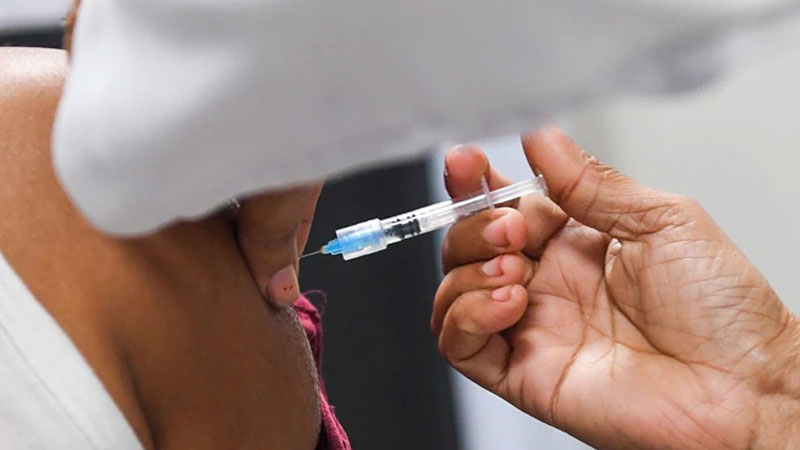
An unemployment income support has been announced for the 2021/2022 National Budget, and the assistance will only provided to people that have received their first dose before the application period ends.
Minister for Economy, Aiyaz Sayed-Khaiyum has announced the $200 million in unemployment income support to Fijians affected by COVID-19 both in the formal and informal sectors.
Starting from 1st August 2021, every affected Fijian will be entitled to a monthly allowance of $120 for 6 months, which will be paid in two lump-sum payments.
The first lump-sum payout of $360 per person will be done in August 2021 to cater for the 3 months from August to October, with a total estimated payout of around $100 million.
This support will assist individuals who are in the formal and informal sectors, are above the age of 18 years, living in Viti Levu and do not benefit from any social welfare payments, education allowances, any other government-funded assistance or withdrawals from FNPF.
Eligible Fijians have at least three weeks to ensure that they get at least the first dose of the COVID-19 vaccine.
Sayed-Khaiyum says no jabs, no assistance.
He says they will make the second payment of $360 in November to eligible Fijians provided they are fully vaccinated by 31st October, with a total estimated payout of an additional $100 million.
This payment will cater for the 3 months ending January 2022.
They will make medical exceptions for those with a certificate from the Permanent Secretary for Health and Medical Services.
Individuals will be required to apply for this assistance, and payouts will be made using M-Paisa and My-Cash platforms.
It will also be mandatory for applicants to provide their birth registration number and their tax identification number apart from other details.
This is necessary because assistance is being paid out on an individual basis.
Sayed-Khaiyum says if there are four eligible individuals per household, the household will receive an unemployment payout of $1,440 for the first payment and an additional $1,440 for second payment.
The earlier initiative whereby unemployed Fijians were eligible for $220 fortnightly payout from FNPF will continue for members with sufficient General Account balances. All those who have exhausted their General Account balances or do not want to access their General Account balance will be eligible for the $720 per-person payout under the new initiative.

Minister for Economy and Attorney-General Aiyaz Sayed-Khaiyum says as more adults in Fiji are fully vaccinated, they are developing secure vaccine passports which are essentially digital vaccination certificates.
While delivering 2021/2022 National Budget, Sayed-Khaiyum says you can prove if you have been vaccinated and also show recent COVID-19 test results.
He says this digital tool will be available in two forms - a personalised “digital wallet” whereby Fijians can have their vaccination and COVID-19 test information right on their smartphones or paper printed with readable parts such as barcodes or QR codes.
Sayed-Khaiyum adds they are calling these passports which usually you only need to travel internationally, but these digital certificates will have domestic and international applications.
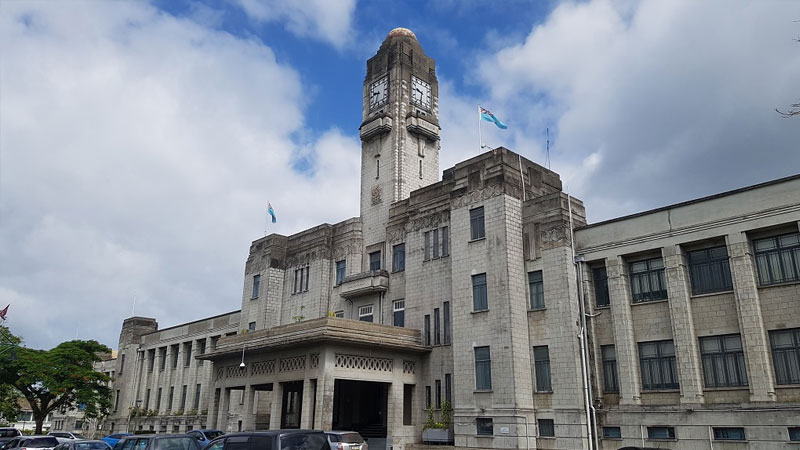
There is some good news for civil servants as their pay will not be reduced in the 2021/2022 financial year however, when they do review this budget in six months, civil service salaries will be carefully reviewed in the event the borders do not reopen and our economy has not shown measured signs of revival.
While delivering the National Budget, Minister for Economy, Aiyaz Sayed-Khaiyum says they continued paying civil service salaries with no reduction for civil servants below the level of Permanent Secretaries.
He says they have continued to pay teachers, even though they haven’t conducted classes since the start of this outbreak adding that even teachers on acting allowance have been paid during this period.
Sayed-Khaiyum further says they have done this because they want to keep their teachers and make sure they are ready to go the extra mile when schools reopen to help their students catch up on missed curriculum.
He adds some civil servants who work from home on reduced hours or others who cannot attend work due to lockdown measures or home isolation protocols have also been paid in full.
The Minister says by supporting civil servants they are doing more than looking out for their employees, they are supporting the families that rely on civil servants to provide for them, they are supporting the businesses they shop at, and they are supporting the economy as a whole.
Sayed-Khaiyum also says a good number of civil servants are working harder than ever to maintain the Government’s services, especially through this latest outbreak, and they should not and they will not see their salaries reduced further.
He adds to save costs, they have frozen hiring for new positions in the civil service except for the Ministries of Health, Communications, Local Government as well as the Police.
Sayed-Khaiyum says they have gone more than a year without making serious cuts to salaries.
However, he says that commitment does hinge on government revenue being restored within six months, and that depends on more of us being vaccinated.
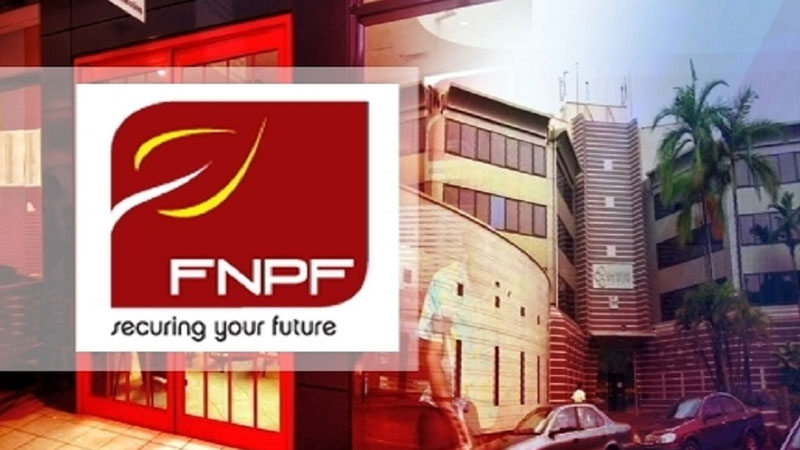
The Government has announced that FNPF members between the ages of 50 to 54 years who have FNPF balance of up to $10,000, and affected due to COVID-19, will now be able to withdraw funds from their account.
While making the announcement in the 2021/2022 National Budget, Minister for Economy, Aiyaz Sayed-Khaiyum says this will provide financial support to these members to support their livelihood and members can also use these funds to set up small businesses.
Other affected members will also be able to withdraw up to $10,000 for business-related purposes.
Sayed-Khaiyum says this will be an injection of around $30 million in the economy and around 15,000 members qualify to withdraw their funds.
He has also announced the FNPF Employer-Employee contribution to be increased from 5 to 6%.
FNPF has also extended the COVID-19 Home Loan Assistance until 31st September 2021 with acceptance of moratoriums dated after 31st March 2021.
The Minister for Economy says this assistance will enable members to dip into their preserved account to help pay for their mortgage or monthly repayments.
Members are also able to access 100 percent of their General Account and 50 percent of their Preserved Account.
As at end of June 2021, around 1,911 members have accessed this assistance with a total value of $15.3 million.
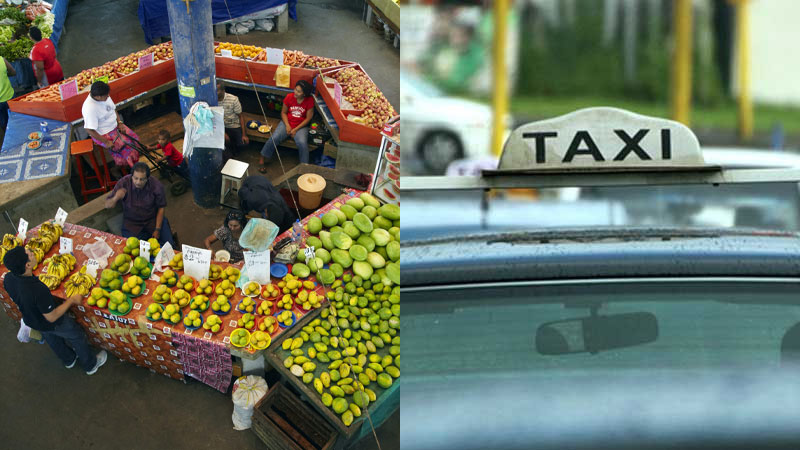
There is good news for market vendors, taxi, minibus, carrier and bus operators as the Government will be paying their stall and base fees.
Minister for Economy Aiyaz Sayed-Khaiyum says to support all casual and full-time market vendors in Fiji and provide financial relief across the country, $2.6 million is allocated to pay the full market stall fees for one year from 1st August 2021 to 31st July 2022 for the benefit of around 8,000 vendors.
Sayed-Khaiyum says if you are selling in a market, your fees are paid and you can keep more of your income, use it to sustain your family, use it to build your business, and lower your prices if you think it helps you sell and earn more.
He further says the Government will also put aside an allocation of $2.5 million to pay base fees for taxis, minibuses, carriers and buses for one year, also to cushion the burden brought about by the COVID-19 pandemic and the lowered demand for passenger travel that has hit the bottom-line of public service vehicle drivers.
Sayed-Khaiyum adds in relation to fees, they will also be removing the LTA alteration-of-records fee to make it easier for Fijians to change their records held by the LTA.
He says the Government will pay the driving license and defensive driving fees for all taxi drivers, bus drivers, mini-bus drivers and carrier drivers who are up for renewals in the next financial year while Government will also pay the wheel tax and road user levy for tractors and golf carts for 12 months.
Sayed-Khaiyum says they are removing municipal taxi bases and stands and replacing them with a new concept of ‘open taxi ranks’, which will allow taxis to operate more freely and efficiently within their zones.
He further says with the removal of municipal taxi bases and stands, they will also be removing the various base, stand and station fees that public service vehicle permit holders currently pay that covers taxi drivers, bus drivers, and minibus drivers and replacing them with an annual PSV levy paid for by all PSV permit holders except rental permit holders and those who have paid these fees already will be reimbursed.
Sayed-Khaiyum also says the new PSV levy will be collected and placed in a specific trust fund that will be used for the development and maintenance of PSV bases, stands and stations.
Government will also be waiving the 50 percent additional penalty charged on Traffic Infringement Notices for personal motor vehicle infringements incurred from 15 July 2021 for unemployed Fijians.
These are for basic infringements such as speeding, red-light traffic infringement and other infringements that do not involve illegal operations.
Sayed-Khaiyum says these individuals will be given a grace period from 1st August 2021 to 31st July 2022 to come forward and clear their principal Traffic Infringement Notices amounts.
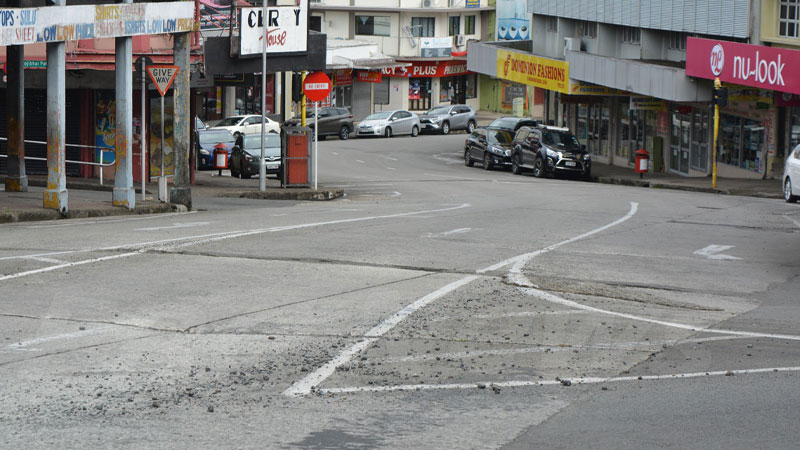
The Government has announced that $200 million in loans is available to businesses to meet their working capital needs.
20,000 businesses can be assisted through this.
The Government will pay the interest for the first two years which means the businesses will not pay for the first two years.
The $200 million loan will be made available through the Reserve Bank of Fiji to commercial banks.
Existing micro-businesses with turnover less than $50,000 will be eligible for a maximum loan funding of $10,000.
Small businesses with an annual turnover of $50,000 to $300,000 will be eligible for a maximum loan funding of $20,000, while medium-sized businesses with an annual turnover of $300,000 to $1.25 million are eligible for a maximum loan of $50,000.
Large businesses with turnover of more than $1.25 million can access up to $100,000 in loans.
Through this scheme the Reserve Bank of Fiji will provide special funding of $200 million at a rate of 0.25% that can be accessed by commercial banks, FDB and other licensed credit institutions.
These financial institutions will lend these funds at a maximum rate of 3.99 percent. All of this will allow Fiji’s banks to make these interest-only loans for the first two years.
That means that for the first two years, none of these businesses will pay anything because Government will pay all the interest.
Minister for Economy Aiyaz Sayed-Khaiyum says the beauty is that these loans cannot become bad or default for the first two years, because debt service will always be current.
He says this gives our businesses two full years to stabilize and recover, if necessary, before they start the loan repayments from year three onwards.
It has also been announced that from 1st August 2021, micro, small and medium enterprises with a turnover of less than $1.25 million will pay residential rates for EFL, not commercial rates.
The government will also pay through RBF for the fees for the micro, small and medium enterprises to get on Vodafone Fiji's VitiKart platform.
They will also pay for the monthly fees for corner shops that provide MPAiSA services.
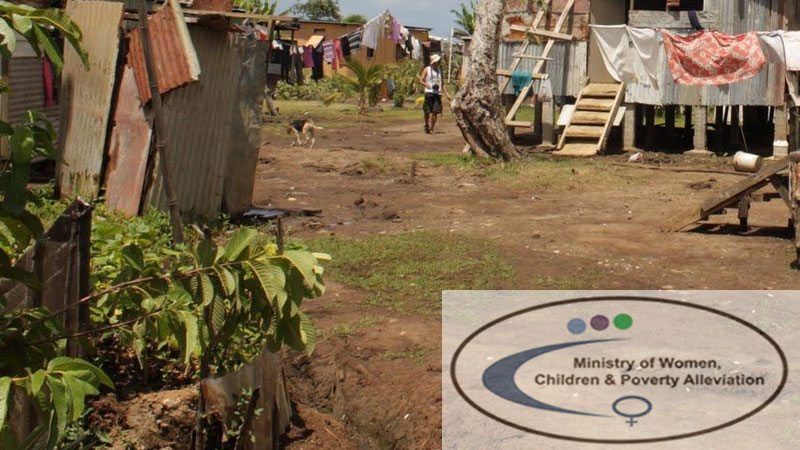
Minister for Economy, Aiyaz Sayed-Khaiyum says social welfare recipients eligible for term life and funeral benefits must be fully vaccinated by 1st November 2021.
While announcing the National Budget, Sayed-Khaiyum says the Government is subsidising micro-insurance coverage for all social welfare recipients through the Government Micro Insurance Program at a cost of $5.6 million per year.
He says this insurance policy pays out in the event of death, house fires and sickness and vaccination is a requirement of insurance companies, given the severe risks of death due to COVID-19.

The Government will continue to provide free water to households with an annual household income of less than $30,000 for up to 92,500 litres of water.
Minister for Economy, Aiyaz Sayed-Khaiyum says the same goes for access to electricity.
He says for households earning an annual income of less than $30,000, they have been providing a subsidy of 16.34 cents per unit for the 100 kilowatts of power usage.
Effective from 1st August 2021 to 31st January 2022, the Government will pay the full cost of 34.01 cents for approximately 50,000 households at a total cost $11 million.
Sayed-Khaiyum says like almost everything else in this budget, this policy depends on vaccination rates climbing, so it will be reviewed in six months’ time.
He says apart from this, subsidized domestic customers will get six weeks to pay their electricity bill without disconnection.
Non-subsidised domestic customers will get four weeks for their bill payment.
This extended bill payment will be provided for six months from 1st August 2021 to 31st January 2022 before it is reviewed.

Minister for Economy, Aiyaz Sayed-Khaiyum has announced that the Government will extend the minimum guarantee price of $85 per tonne of cane for the 2021 season, making this the fourth year of guaranteed cane price support.
He says they understand the plight of the farmers and government stands behind them.
The Ministry of Sugar Industry is provided funding of $72 million in the 2021-2022 Budget which is an increase from $53.6 million which was allocated in the 2020/21 National Budget.
Sayed-Khaiyum says this includes a funding allocation of around $47 million for the sugar cane price support.
He says this includes around $22.9 million for the additional top-up payment required for the 2020 season and $24.1 million to pay for the minimum guaranteed price of $85 dollars per tonne for the 2021 season.
The Minister says the remaining funding requirement of $8 million dollars, dependent on the cane harvest for the 2021 season will be provided in the 2022-2023 Budget to meet the final payment for the 2021 season.
The Minister has also highlighted that apart from this, the Government will continue to provide the fertiliser subsidy to farmers at a rate of $25.59 per bag with a total funding allocation of $15.6 million.
He says this means that farmers will only continue to pay a price of $20 per bag of fertiliser.
Sayed-Khaiyum $3.8 million is also provided for the cane cartage subsidy from Penang to Rarawai Mill.
A further $3.3 million is also provided for cane access roads, sugarcane development farmer assistance, weedicide subsidy and new farmer assistance.
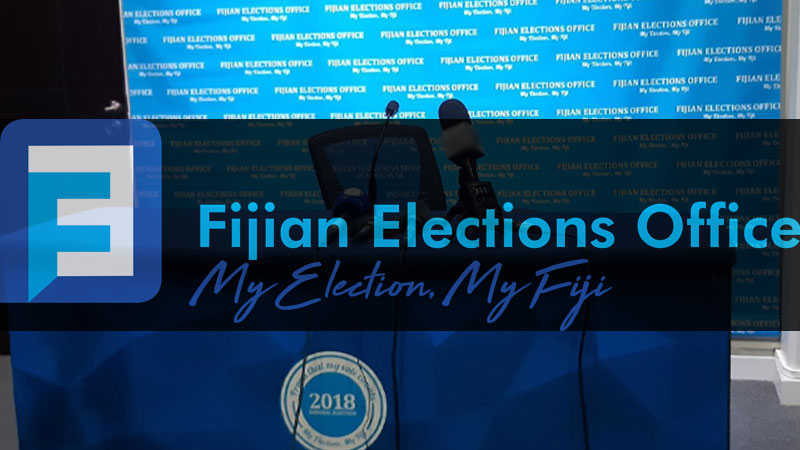
The Government is providing $23.1 million to the Fijian Elections Office to continue preparations for the General Election.
Elections can be held anytime from 9th July 2022 to 9th January 2023.
Minister for Economy Aiyaz Sayed-Khaiyum says an additional $16.3 million has been provided in the event that elections are held within the 2021-2022 financial year.
$1.5 million of that total will go to Fiji Police Force to maintain security during elections.

Funding has been allocated in the 2021-2022 National Budget for 328 new positions in the Fiji Police Force.
This includes the promotion of 158 police officers and recruitment of 82 new police officers, 78 special constables, 7 civilian officers and 3 Government wage earners.
The Fiji Police Force has been allocated $184.3 million in the 2021-2022 budget.
$152.4 million is for operating expenditure and $27.9 million for capital expenditure.
Minister for Economy Aiyaz Sayed-Khaiyum says the Government will continue to fund the construction of new Police Stations, currently underway in Nakasi, Nadi, Lautoka and Nalawa.
He says $25 million is allocated for the ongoing construction of police stations, which will expand the reach of law enforcement to Fijians living in the central and western divisions.
Sayed-Khaiyum adds an additional $1 million is allocated for renovation, extension and upgrade of existing police posts. He says $1.2 million is provided to undertake special drug operations that arise based on any suspected cases of drug-related activities in all divisions.
Sayed-Khaiyum further says over the course of the past two years, this operation has uncovered over $200 million in various narcotics.
He adds a further $1.5 million is provided for capital purchases to adequately equip the police and police stations to detect criminal activity and lower the response time of officers called to action, including procurement of boats and outboard motor engines, communication and other specialised equipment.
The Republic of Fiji Military Forces is provided a funding of $79.7 million and $36. 5 million is provided to the Fiji Corrections Services. FICAC has a budget of $7.9 million.
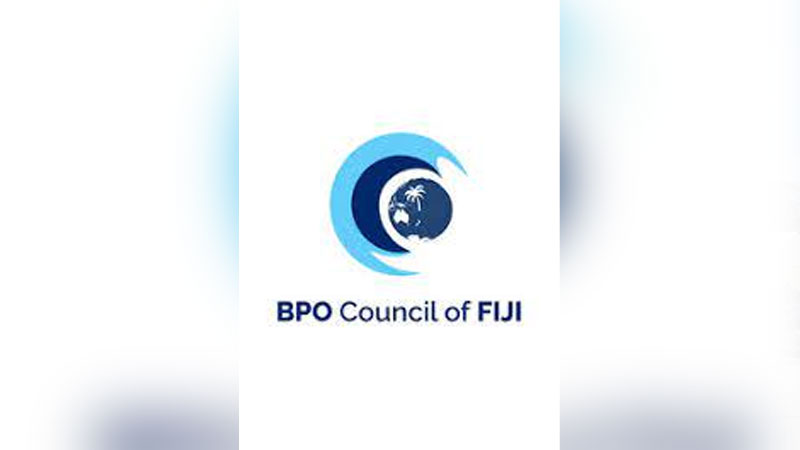
Minister for Economy, Aiyaz Sayed-Khaiyum says the Business Process Outsourcing Council will be provided with a grant of $200,000 in the 2021-2022 National Budget to develop the BPO sector.
Business Process Outsourcing companies includes such as call centres and those that provide accounting services.
Sayed-Khaiyum has also announced tax incentives for the industry where new investments exceeding $10 million in infrastructure that supports Business Process Outsourcing will be offered a 20-year tax holiday.
A 10 year and 15 year tax holiday will also be available for investments between $2 million to $5 million and $5 million to $10 million, respectively.
He says customs duty exemptions will also be provided as part of this incentive package.
The Minister says this investment package will be extended to investors that derive 90% of income from an ICT business.
He says if the investor is also involved in developing strata titles and selling them to Information and communications technology or BPO operators, the sale proceeds will also be exempt from income taxes.
Sayed-Khaiyum adds the remote work revolution can come to Fiji as Fiji has the workforce, the data accessibility, and the incentives in place to do extremely well in this industry.
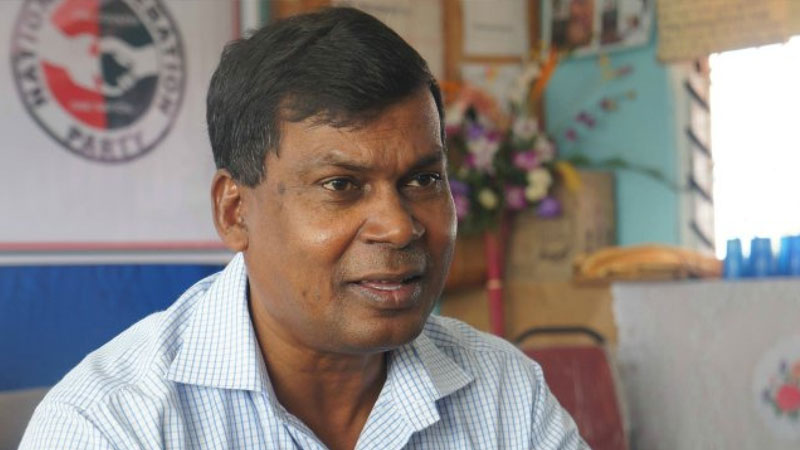
National Federation Party Leader Professor Biman Prasad says the 2021/2022 National Budget is just based on the assumption, that will like all other budgets in recent years result in hopelessness and despair.
Professor Prasad says the Minister for Economy has carefully avoided giving any information on the COVID-19 crisis and is imagining that everything will be magically resolved by 31st October.
He adds there is a lot of uncertainties, doubts and lack of carefully planned expectation of what is likely to happen in the next couple of months.
The NFP Leader also says he feels that the projection in the revenue is overestimated and not realizable.
He adds the Minister has conveniently avoided talking about the crisis which is affecting the country at the moment.
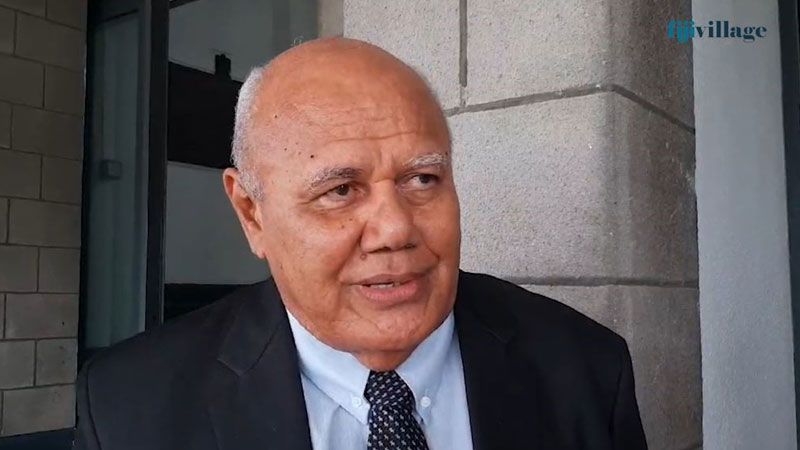
SODELPA Leader Viliame Gavoka says it is very obvious that the Government is creating demand and putting money in the hands of the people and this is exactly what the Opposition has been saying for the last year or so.
Gavoka says they believe that it is the right way as they have been saying create the demand and the economy will recover.
He says at the same time, we have to look at the expenditure.
Gavoka says they have a team that will analyse and scrutinize the budget in the coming days and seminars will be organized with the parliamentary caucus.
On the issue of an alternative budget being presented by the Opposition, Gavoka says discussions will be held and nothing is definitive on this subject yet.
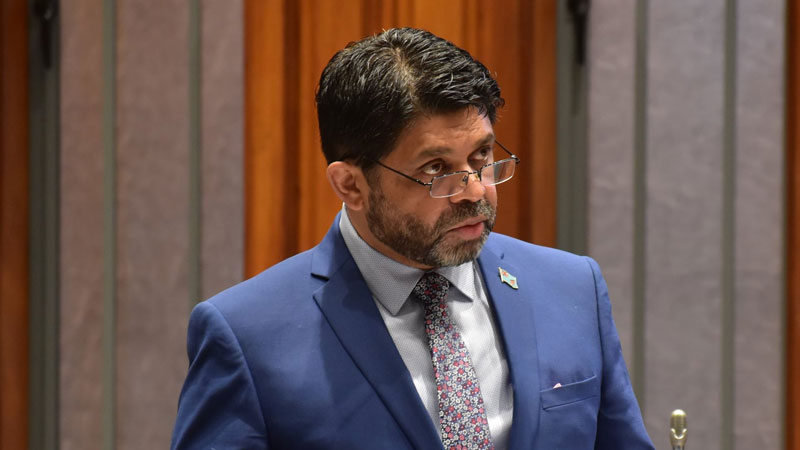
Government will continue to assist more than 130,000 Fijians through their Social Welfare programs in the new financial year.
Minister for Economy Aiyaz Sayed-Khaiyum says despite massive reductions in fiscal revenue, government has not forgotten its obligation to protect the most marginalized Fijians.
$120 million has been allocated for the Poverty Benefit Scheme, Child Protection Allowance Program, Disability Allowance Program, Social Pension Scheme and Bus Fare Subsidies.
The Minister for Economy says $55 million has been allocated for the Social Pension Scheme which will support 48,094 Fijians above the age of 65.
They will receive a monthly payment of $100.
He says $36 million has been allocated to assist 27,490 Fijians through the Poverty Benefit scheme.
$10.8 million has been allocated for the Disability Allowance Program, $11.3 million is allocated under the Child Protection Allowance to support vulnerable children while $5 million has been allocated to provide bus fare support for the elderly and people with disability.
Sayed-Khaiyum says a further $1 million is allocated for the Food Voucher Program for rural pregnant women.
He adds overall funding for social protection initiatives has been reduced by $4.2 million compared to the 2020-2021 financial year.
Sayed-Khaiyum says this is does not mean that they are scaling down but because they are making sure that the assistance reaches the people who really need it.
The Attorney General has also acknowledged the Australian Government for providing budget support to selected social welfare programs in the 2020-2021 financial year which will also be applied to the new financial year.
The Minister for Economy says for the financial year 2021-2022, tax revenue collections are projected at $1.597 billion, 43.3% lower than pre-COVID levels.
He says compared to the 2020-2021 financial year, tax collections are higher due to lower estimated VAT refunds as large backlog of outstanding refunds were cleared in this financial year.
This higher collection is also based on the assumption that there will be some form of reopening of the borders in the first half of 2022, but arrivals are conservatively estimated at around 20% of preCOVID levels for revenue projection purposes.
Sayed-Khaiyum says it is important to note that the Government will also carry over around $150 million in cash balances to the new financial year. He says this provides an additional buffer in the event if tax revenues do not perform as projected.
Apart from this, non-tax revenue is estimated at $487.5 million.
The Minister for Economy says the Government will continue reforms with further divestments planned for Amalgamated Telecom Holdings Limited, Fiji Airports Limited and some other small entities.
He says this is expected to generate around $150 million in non-tax revenue.
Government is also in discussion with a number of development partners for more budget support grants which is conservatively budgeted at around $116.3 million.
Based on the assumptions, the total revenue for 2021/2022 National Budget is projected to be around $2.1 billion. This includes tax revenue of around $1.6 billion and $488 million in non-tax revenue including grants and divestment of shares.
On the expenditure front, Sayed-Khaiyum says reductions have been made in operational expenditure across Government, including a freeze in civil service recruitments and reductions in other current expenditures.
However, new expenditure demands have been catered for to provide targeted assistance to those unemployed and vulnerable, and fiscal support provided to businesses and the tourism industry to sustain themselves before the borders open up.
The total expenditure for the next budget is around $3.69 billion.
Government debt is projected to be around $9.1 billion or 91.6% of GDP by end of July 2022.
However, the Minister for Economy says as seen in this financial year, it is likely that actual debt could be lower than projected if border reopening and pick up in tourism and other sectors are much stronger than anticipated.
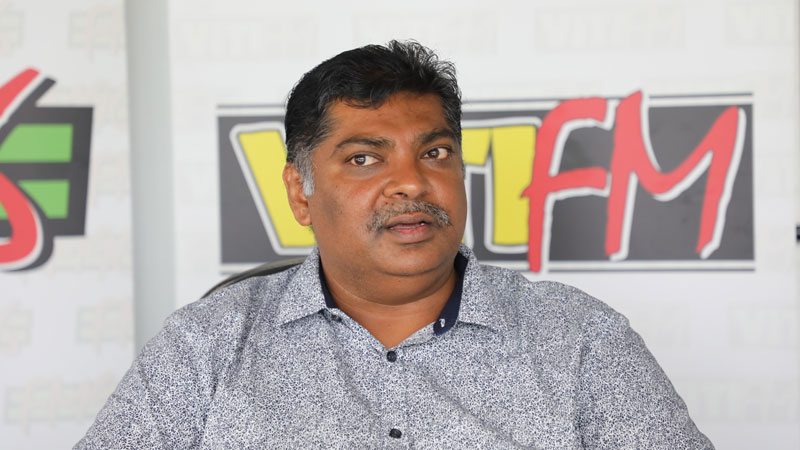
The President of the Suva Retailers Association Jitesh Patel says the 2021/2022 National Budget is a good budget because there is a lot of assistance for people who have been severely affected by the COVID-19 pandemic.
He says this is what they were expecting from the Government as more people are affected due to unemployment.
Patel says the continuation of the free education assistance and also providing sanitary pads for schoolgirls is a great initiative from the Government.
He further says the Government has done great in the last financial year and with the new incentives in place, businesses will also benefit.
He adds with $200 million in loans available to businesses to meet their working capital, will be re-invested in the economy through spending of the people and in the end build the economy back.
The President of the Suva Retailers Association says they support the Government's no jab no job policy.
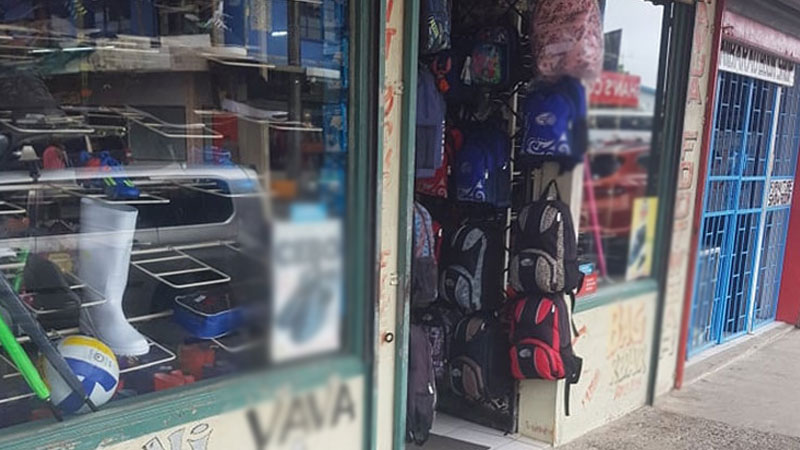
The Government has announced that $200 million in loans is available to businesses to meet their working capital needs.
20,000 businesses can be assisted through this.
The Government will pay the interest for the first two years which means the businesses will not pay for the first two years.
The $200 million loan will be made available through the Reserve Bank of Fiji to commercial banks.
Existing micro businesses with turnover less than $50,000 will be eligible for a maximum loan funding of $10,000.
Small businesses with an annual turnover of $50,000 to $300,000 will be eligible for a maximum loan funding of $20,000, while medium-sized businesses with annual turnover of $300,000 to $1.25 million are eligible for a maximum loan of $50,000.
Large businesses with turnover of more than $1.25 million can access up to $100,000 in loans.
Through this scheme the Reserve Bank of Fiji will provide special funding of $200 million at a rate of 0.25% that can be accessed by commercial banks, FDB and other licensed credit institutions.
These financial institutions will lend these funds at a maximum rate of 3.99%.
All of this will allow Fiji’s banks to make these interest-only loans for the first two years.
That means that for the first two years, none of these businesses will pay anything because Government will pay all the interest.
Minister for Economy Aiyaz Sayed-Khaiyum says the beauty is that these loans cannot become bad or default for the first two years, because debt service will always be current.
He says this gives our businesses two full years to stabilize and recover, if necessary, before they start the loan repayments from year three onwards.
It has also been announced that from 1st August 2021, micro, small and medium enterprises with a turnover of less than $1.25 million will pay residential rates for EFL, not commercial rates.
The government will also pay through RBF for the fees for the micro, small and medium enterprises to get on Vodafone Fiji's VitiKart platform.
They will also pay for the monthly fees for corner shops that provide MPAiSA services.
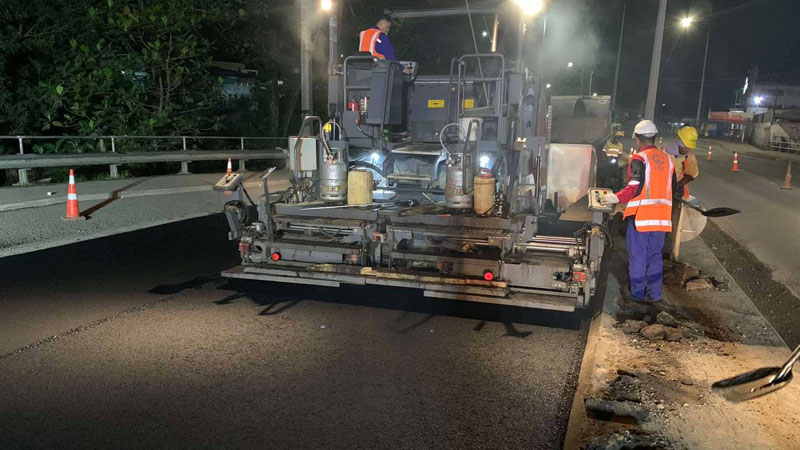
The Government says $500 million in the 2021-2022 National Budget will go towards upgrading, modernising, and expanding the road network and the provision of clean and safe drinking water and electricity.
$272 million is provided for the Fiji Roads Authority, $195 million to the Water Authority of Fiji and $26.6 million to the Ministry of Infrastructure and Meteorological Services.
This also includes over $11 million for grid extension and house wiring and rehabilitation of diesel schemes for communities that have been relocated to protect them from the rising seas.
Energy Fiji Limited will now be responsible for back to back work including grid extension and house wiring to make the process more efficient.
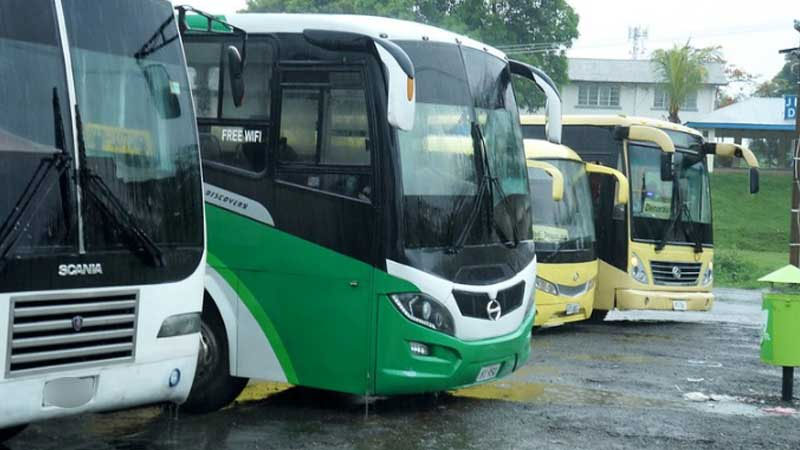
To give more travel options to Fijians rather than opting for their own personal vehicles every day of the working week, the Government will be piloting suburban shuttle stations at three sites in the country.
While speaking on the 2021/2022 National Budget, the Minister for Economy Aiyaz Sayed-Khaiyum says right now, we have some restrictions on the number of people who can travel together in public transportation vehicles.
He says as more people are vaccinated, those restrictions will start to ease and the Government is laying the groundwork to make public transportation easier and more convenient once Fiji is fully reopen, particularly in densely populated areas.
Sayed-Khaiyum says the three sites will be in Nakasi, Valelevu and Lautoka where transport will pick working Fijians from their homes to their places of work.
He adds that they are also moving certain Government offices to these areas to take advantage of this growing shuttle network.
The Attorney General says these shuttles are more convenient because they will traverse within suburbs on a regular basis, so getting to the stops themselves can take a short walk rather than a long drive.
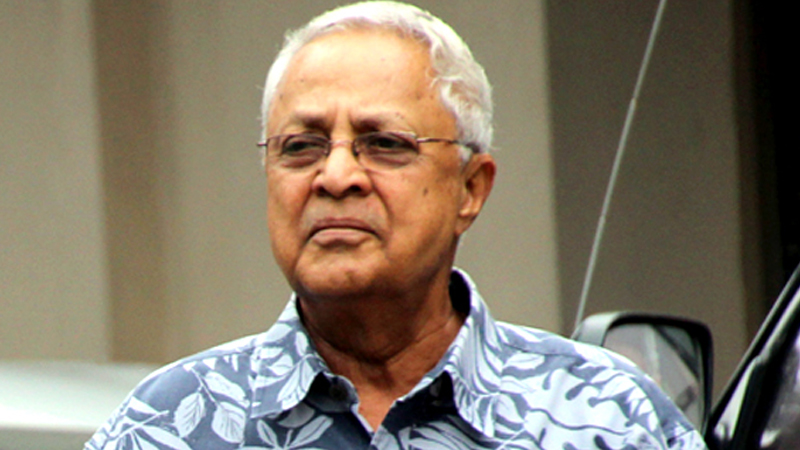
National Farmers Union General Secretary, Mahendra Chaudhry has welcomed the allocation of funds in the 2021/2022 National Budget to retain the minimum guaranteed price of cane.
The Union has thanked the cane farmers who supported its call to delay harvesting until provision was made for the guaranteed minimum price of $85 per tonne of cane.
Chaudhry says farmers can start harvesting now.
He says it was evident from the substantially reduced forecast price and delivery payment for this year's crop that the Government was not intending to continue the guaranteed price.
Chaudhry says the failed attempt last year by the Minister for Economy to reduce the guaranteed price to $70, the low 4th cane payment for the 2020 crop and non-payment of $15 owed on it to farmers were seen by the Union as further indicators of his intention to discontinue the guaranteed price.
Chaudhry says it was largely through disruptions to the milling of cane caused by a majority of farmers delaying their harvest that the Government has relented.
He adds now that the money is there, the Government and the Fiji Sugar Corporation should get off their high horse and pay the balance of $15 owed to farmers for last year's crop without delay.
Chaudhry says adjustments should also be made to the forecast price and delivery payment based on the guaranteed price.
He has also called on the FSC and Government not to victimise the farmers who stood up for their rights.
In his budget address, Minister for Economy Aiyaz Sayed-Khaiyum had said that they are extending the minimum guarantee price of $85 per tonne for the 2021 season because they understand the plight of our farmers.
Sayed-Khaiyum says they have always supported the sugar industry and they always will. He has thanked the cane farmers for starting their harvesting knowing full well that the Government will not leave them behind.
The Attorney General has also thanked the farmers and all the industry stakeholders who did not succumb to the self-interested call for a boycott.
Sayed-Khaiyum says our farmers know very well that a harvesting boycott could never be in their interest and could only serve the interests of those who would use our cane farmers for political gain.
The Ministry of Sugar has been allocated $72 million in the 2021-2022 Budget.
Sayed-Khaiyum says this includes a funding allocation of around $47 million for the sugar cane price support.
He says around $22.9 million is for the additional top-up payment required for the 2020 season and $24.1 million is to pay for the minimum guaranteed price of $85 per tonne for the 2021 season.
Sayed-Khaiyum adds the remaining funding requirement of $8 million dollars, dependent on the cane harvest for the 2021 season, will be provided in the 2022-2023 budget to meet the final payment for the 2021 season.

Around 1,000 new jobs were created under the Stronger Together Job Support scheme since the initiative began in November last year.
Minister for Economy Aiyaz Sayed-Khaiyum says they will continue with the initiative in the new financial year and have allocated $5 million for its continuation.
Sayed-Khaiyum says government has so far spent $3 million on this initiative and around 48 employers have participated in the scheme.
Under this scheme, employers are granted a wage subsidy by government equivalent to the minimum wage rate of $2.68 for a three-month period when they employ eligible Fijians who did not have a job before COVID-19.
This is particularly for people in the informal sector.
Sayed-Khaiyum adds they are also providing $1 million dollars for retaining and reskilling people through the Fiji National University.

Minister for Economy Aiyaz Sayed-Khaiyum says as part of the public-private partnership arrangements with Health Care Fiji Limited, the Ba Hospital will start operations in December this year.
He also says the Lautoka Hospital is scheduled to commence operations in March next year and its services will include open-heart surgery.
Sayed-Khaiyum says they are providing $20 million with an additional $25.7 million under the Ministry of Health for the running of the Lautoka Hospital.
$1.5 million has also been provided in the 2021-2022 National Budget to subsidise kidney dialysis treatment.
Sayed-Khaiyum says the government will provide a subsidy of $150 per treatment.
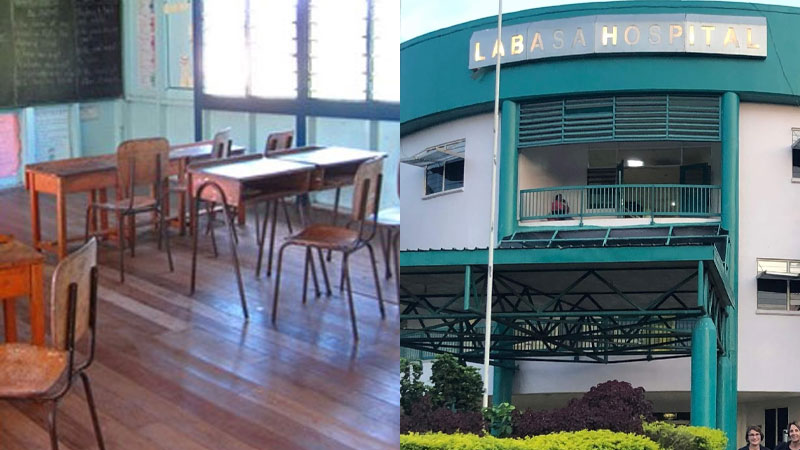
The Government's “Northern Connectivity” Project which aims to make sure Fijians in the North have the ability to connect to fast internet speeds is on track to be completed in December this year.
Minister for Economy Aiyaz Sayed-Khaiyum says this initiative focuses on 40 schools and health centres in the Northern Division.
He says this project will bring reliable access to power, internet and ICT equipment to at least 20,000 Fijians in close proximity to these 40 sites.
Sayed-Khaiyum adds it will also enable other emergency portable satellite-based solutions for the deployment of appropriate assistance in times of disasters.

The government has announced that it will provide a monthly data top-up of $20 per month to domestic university students and Year 13 students to assist them in their online studies.
It will partner with Amalgamated Telecom Holdings for this initiative.
Minister for Economy Aiyaz Sayed-Khaiyum says due to the pandemic, the 25,983 domestic students across three universities in Fiji are currently attending classes and having examinations on online platforms.
He says there are also over 8,000 Year 13 students that need access to data to undertake research for their studies.
Sayed-Khaiyum says the data provided to students will only be available during the semester and school-term periods but the data can be used however students like.
He says they prefer that students don’t waste it all watching dance videos on TikTok.
The Government will contribute $100,000 with the rest provided by ATH.
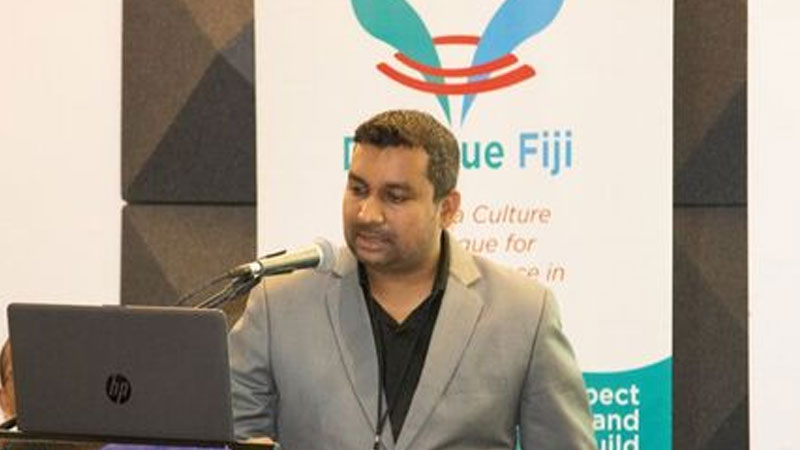
The Executive Director of Dialogue Fiji Nilesh Lal is calling on all Fijians to play their part and get vaccinated to ensure the Government actually has the capacity to execute the 2021/2022 National Budget.
He says the budget is a brave and bold budget delivered during an extremely difficult period for the national economy, which is aimed at creating incentives and providing targeted relief and assistance to individuals and businesses affected by the ongoing pandemic.
Lal says the budget is commendable because it was developed in extremely challenging and uncertain times.
He says when evaluating the stimulus policies, it is important to see whether it will be able to boost spending quickly, achieve a large increase in spending in the short-term with minimal impact on the people.
He adds the $200 million unemployment benefit and the additional $200 million soft loan facility for businesses will boost spending immediately and this is needed in the short term.
However, he further says its impact may quickly evaporate once the Government withdraws its support.
The Executive Director says the announcement of other initiatives, and the continuing of those from the last budget, are also expected to contribute to economic recovery now, but may not be sustainable in the long term.
He says they have noted that the Government's ability to implement a $3.69 billion budget depends on its capacity to raise revenue at appropriate levels.
Lal says there is considerable doubts amongst commentators on whether the Government would be able to generate the projected revenue of $2.085 billion in the new budget given the prevailing economic circumstances.
He says this, however, provides optimism in the fact that the Government was actually able to collect more revenue in the last fiscal year than was projected despite the subdued economic activity in the last quarter due to the second COVID-19 outbreak.
Lal adds that they also noted that the Ministry of Economy is basing its projections on the assumption that herd immunity will be achieved once 80% vaccination coverage is achieved.
He says this is a flawed assumption that is not informed by the prevailing scientific opinion and any estimates which are based on this assumption will likely not hold true whether these may be allocations for health care delivery or projections of revenue from international travel and tourism.
He further says this requires the concerted effort of every Fijian, like never before as economic recovery is incumbent on our ability to contain the current outbreak in the shortest possible time.
Lal says an extra day of the outbreak does additional damage to the economy and compromises the future of our children.
He adds this is why everyone needs to get vaccinated at the earliest and practice COVID-safe measures to contain the spread of the virus.
He says vaccination is the only way to contain the outbreak, given its widespread prevalence in the community.
Lal says the next few months will require every Fijian to do their part in ending this outbreak so that economic activity can return to its former levels or otherwise, painful budget cuts and other strict measures will become unavoidable.
The Executive Director of Dialogue Fiji says the state does not have limitless capacity to drive the economy and overall, the budget has endeavoured to cater for the needs of various sectors of the economy.
He also stated that it is pleasing that the submissions of different stakeholders have been reflected in the budget allocations.
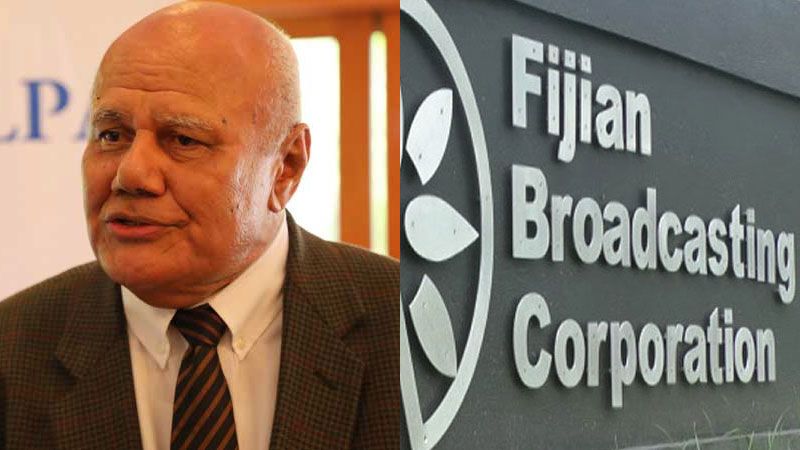
SODELPA Leader Viliame Gavoka says the article by FBC News titled “SODELPA Leader backs budget” published on Saturday was misleading and selective while FBC is standing by the story.
He says he would like to clarify and reiterate that he as party leader as well as SODELPA have not given their support for the 2021-2022 National Budget.
Gavoka says it is unfortunate that various media outlets fail to carry out due diligence in publishing stories particularly on issues of critical importance that impact the nation.
Gavoka says what he told FBC was that the Opposition had been advocating for demand to be created for the economy to pick up.
He says this is to put money in the hands of the people, not by handouts, but by putting money into economic programs that can help people engage in economic activities.
Gavoka says to say that he is supporting the budget is taking it a bit too far.
He says SODELPA will be scrutinizing next week in detail what the 2021–2022 budget means to the people of Fiji.
Gavoka says they will be firing many questions that need to be asked and answered during the upcoming budget debate.
In response to the statement by the SODELPA Leader, the Fijian Broadcasting Corporation says they stand by the story and they only reported what was said by Viliame Gavoka.
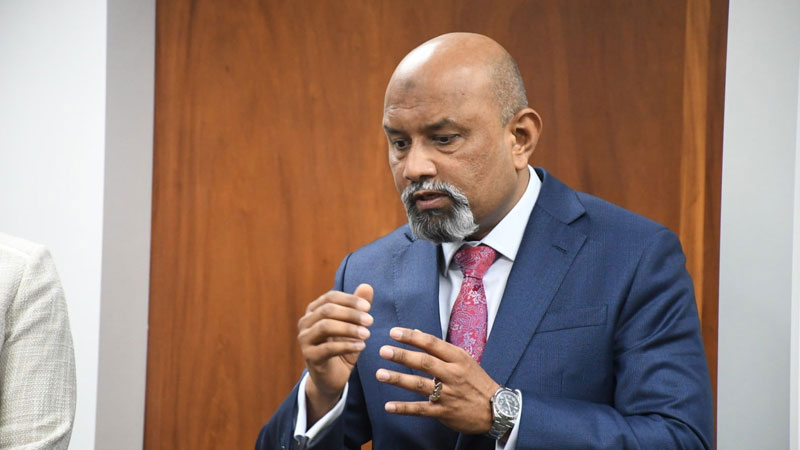
Fiji Development Bank Chief Executive Officer, Saud Minam has welcomed the 2021-2022 National Budget, saying it is courageous, echoes compassion, and is fit-for-purpose.
Minam says it is a much-needed boost to support FDB’s own efforts, in fitting in the existing support framework for its customers affected by the pandemic, by providing a platform for businesses to sustain themselves during these trying times.
He says the $200 million cash injection to Micro, Small and Medium Enterprises sector (MSMEs), which could be accessed through FDB, fully subsidized for two years, is an enormous commitment by Government for the resilient recovery of Fijian businesses.
Minam says under this initiative when businesses take a loan from FDB, ranging between $10,000 and $100,000, they will not be repaying anything to the Bank for two years and it will be an interest-only loan for that period that the Government will pay on behalf of the business.
He says from the third year, after two full years of cushioned recovery, the businesses can start repaying their loan.
Minam says this budget provides the needful stimulus for a resilient economic recovery by addressing the most wideranging socio-economic aspects of Fijian’s livelihood and safety, as well as the financial burdens of businesses that continue to grapple with the impacts of the pandemic.
He says it is a shot in the arm for our MSMEs, an important sector that supports close to 60 percent of Fijians in job, and their agriculture customers.
FDB Chairman Andre Viljoen says another good news is for their largest customer-base, agriculture. He says with the Government increasing its interest-rate subsidy for agriculture loans by FDB from 6 percent to 8 percent and increasing the loan limit for the subsidy from $50,000 to $100,000, their customers will pay less.
Stay tuned for the latest news on our radio stations

